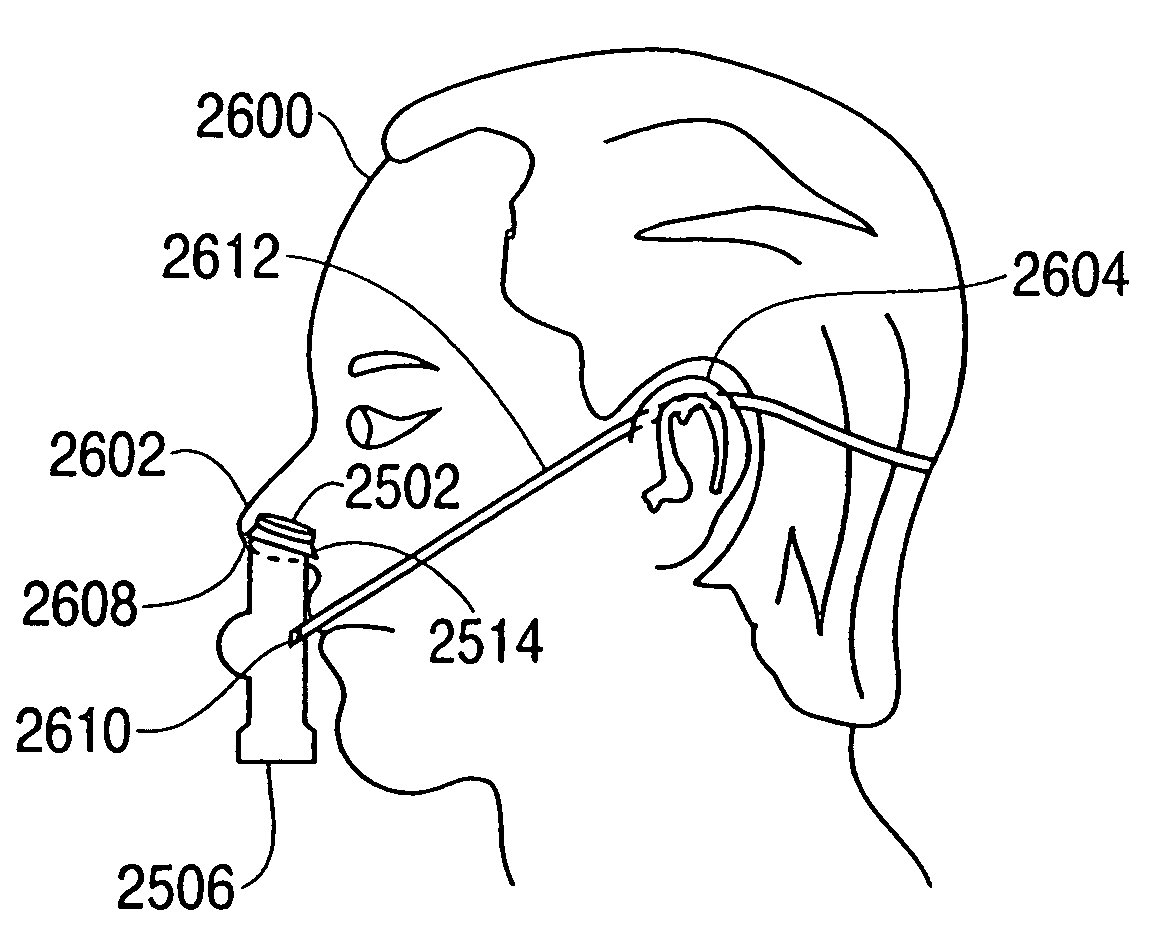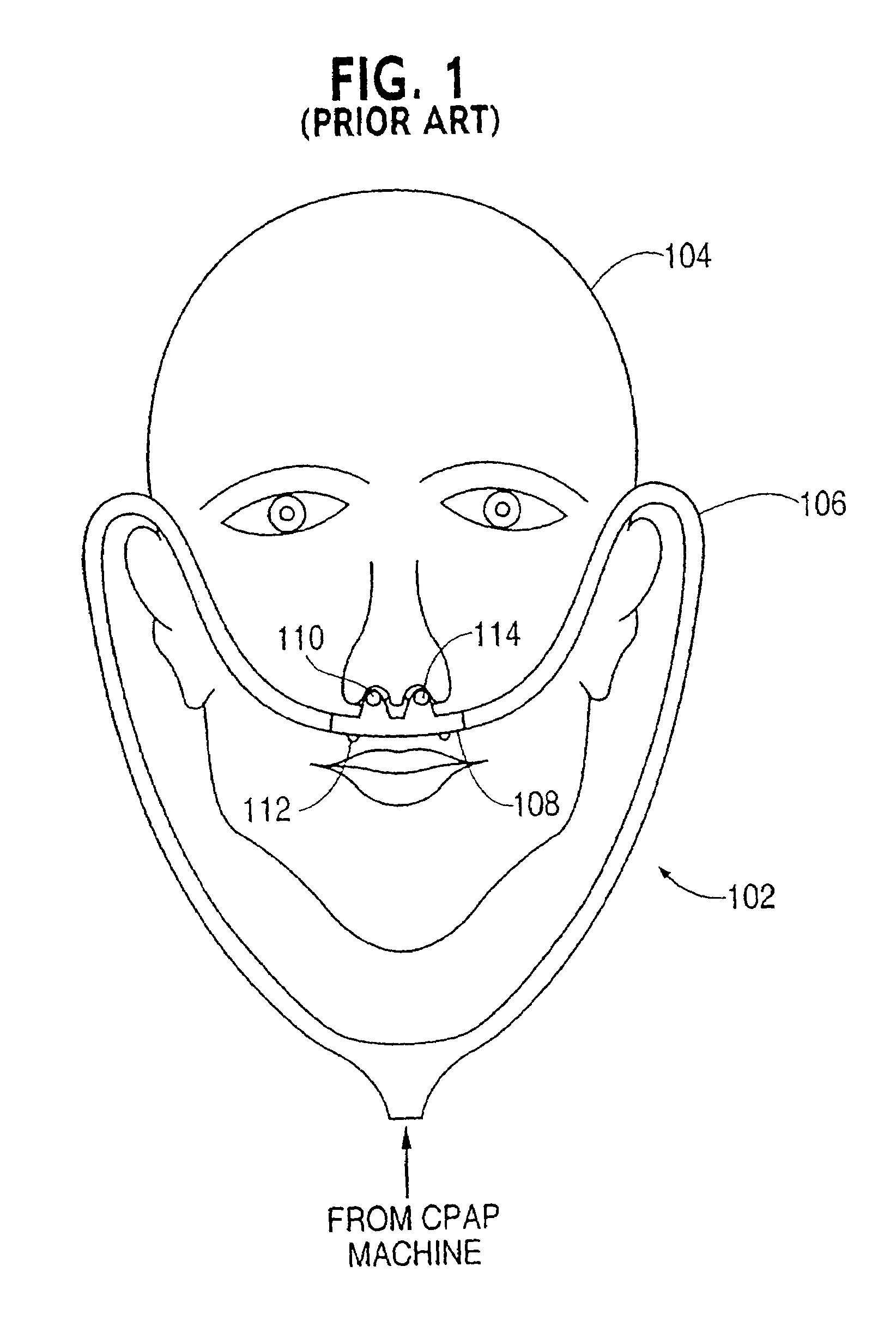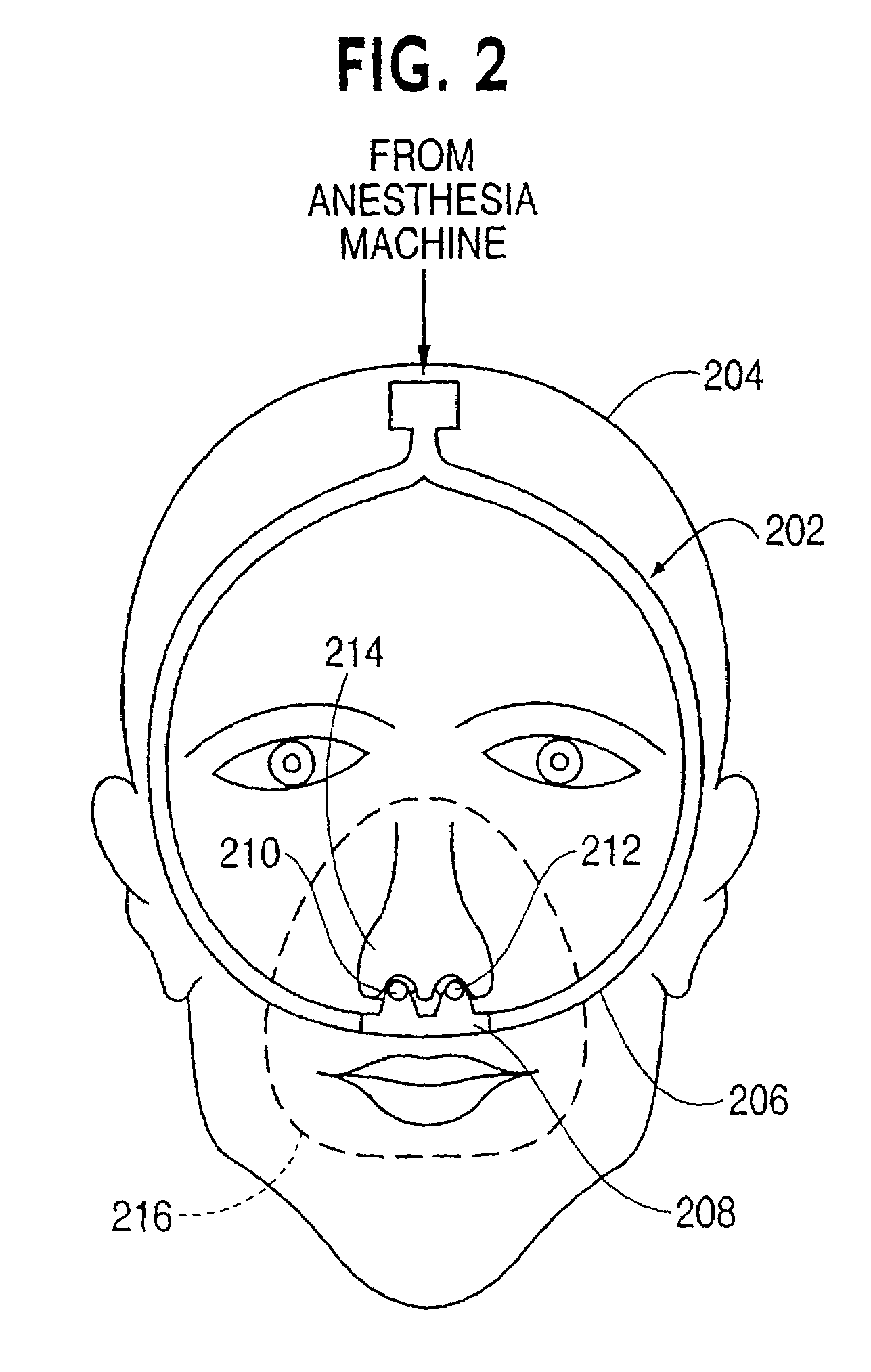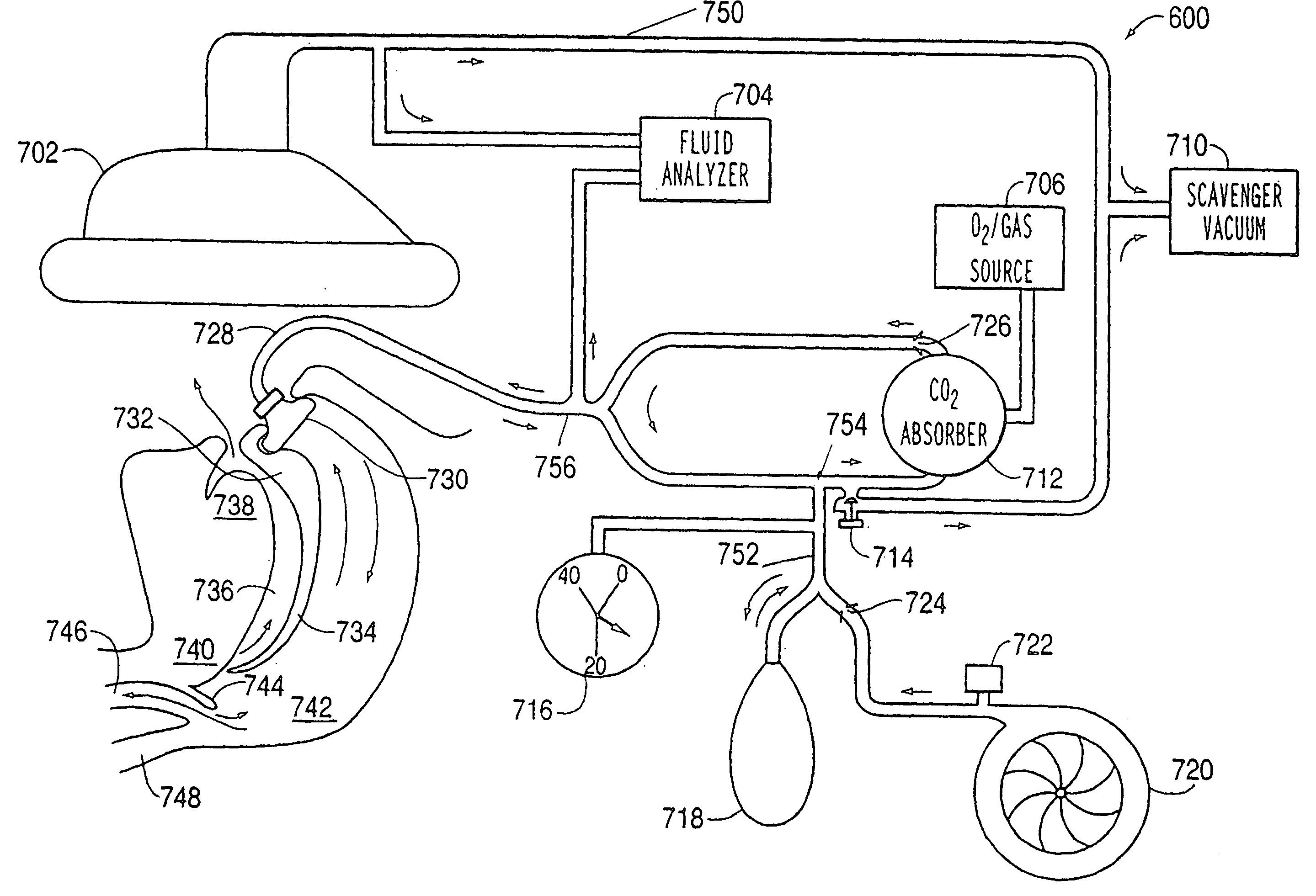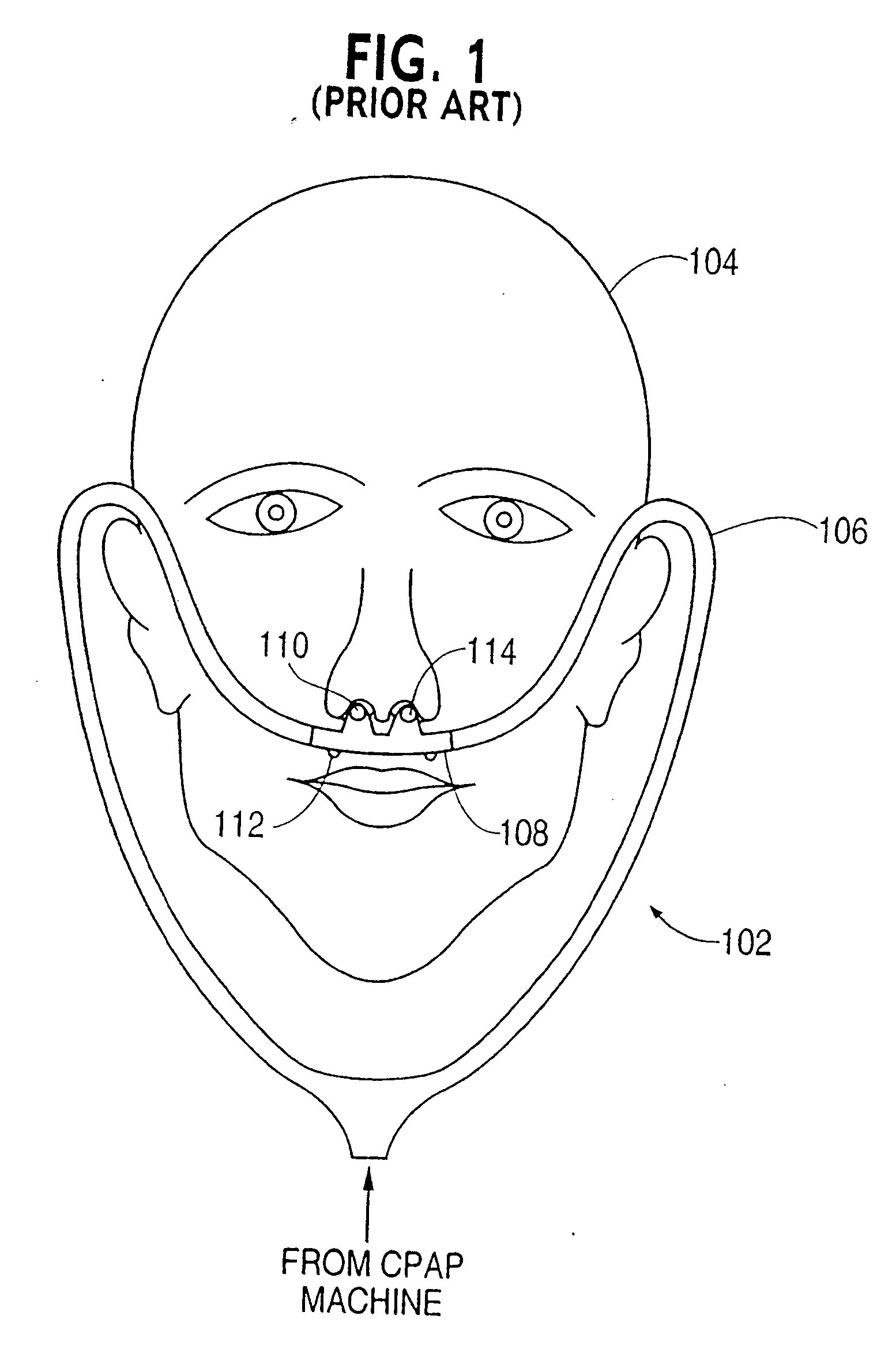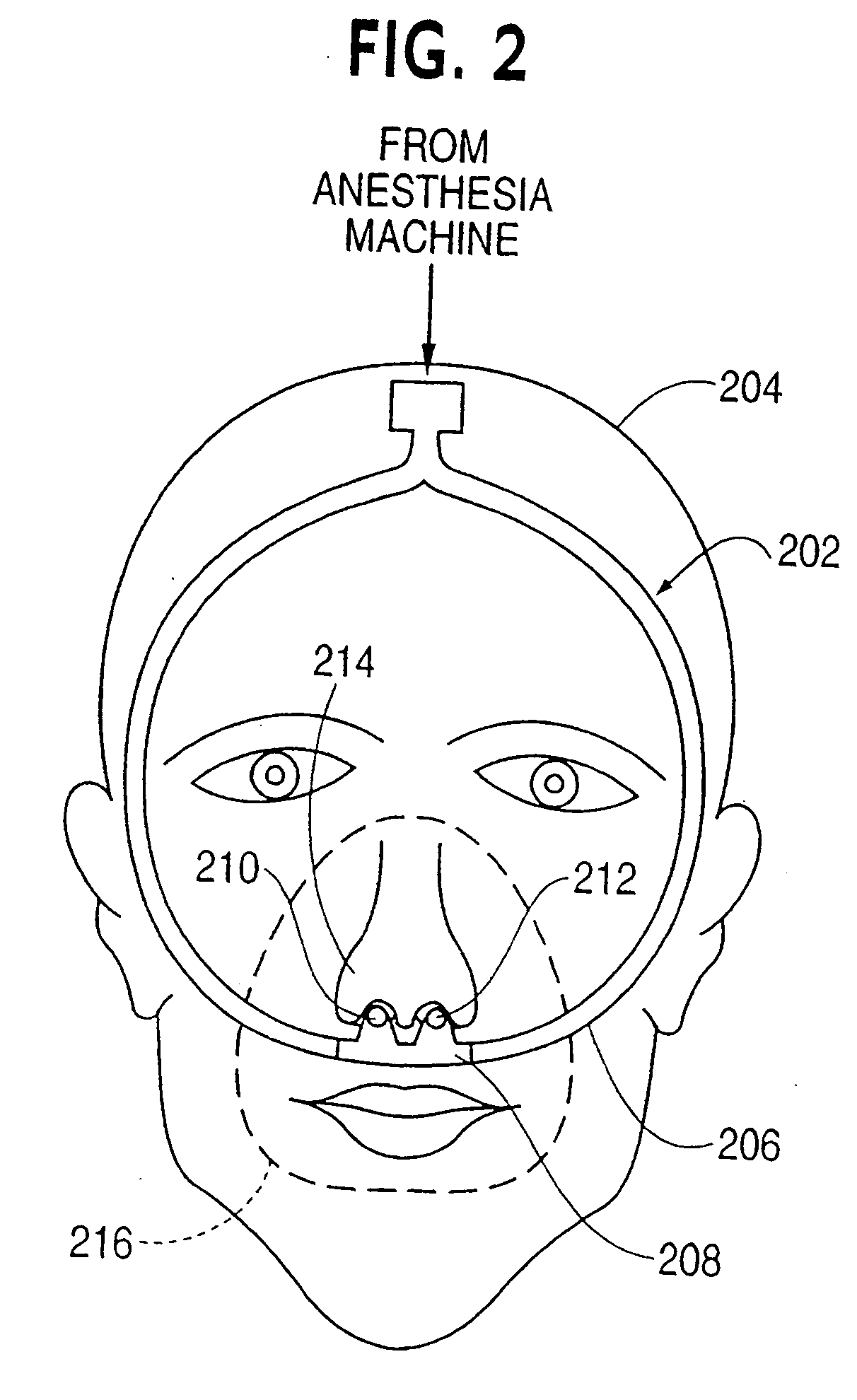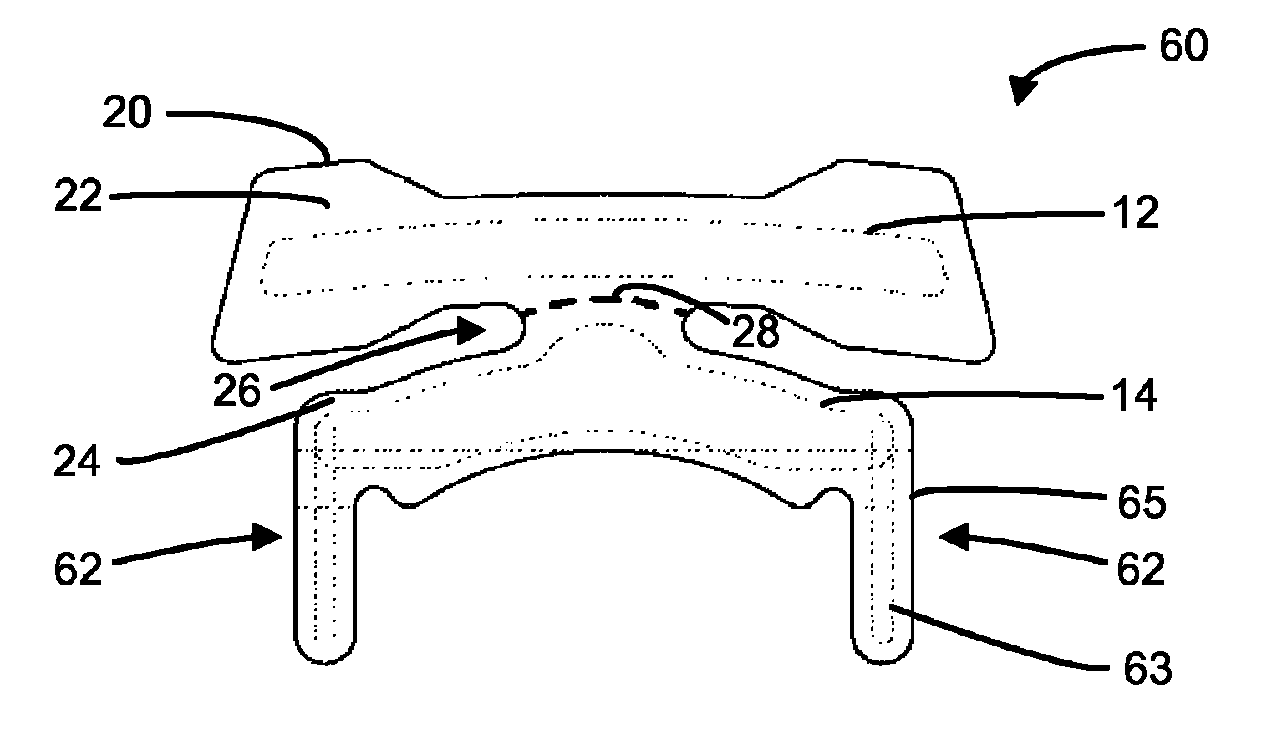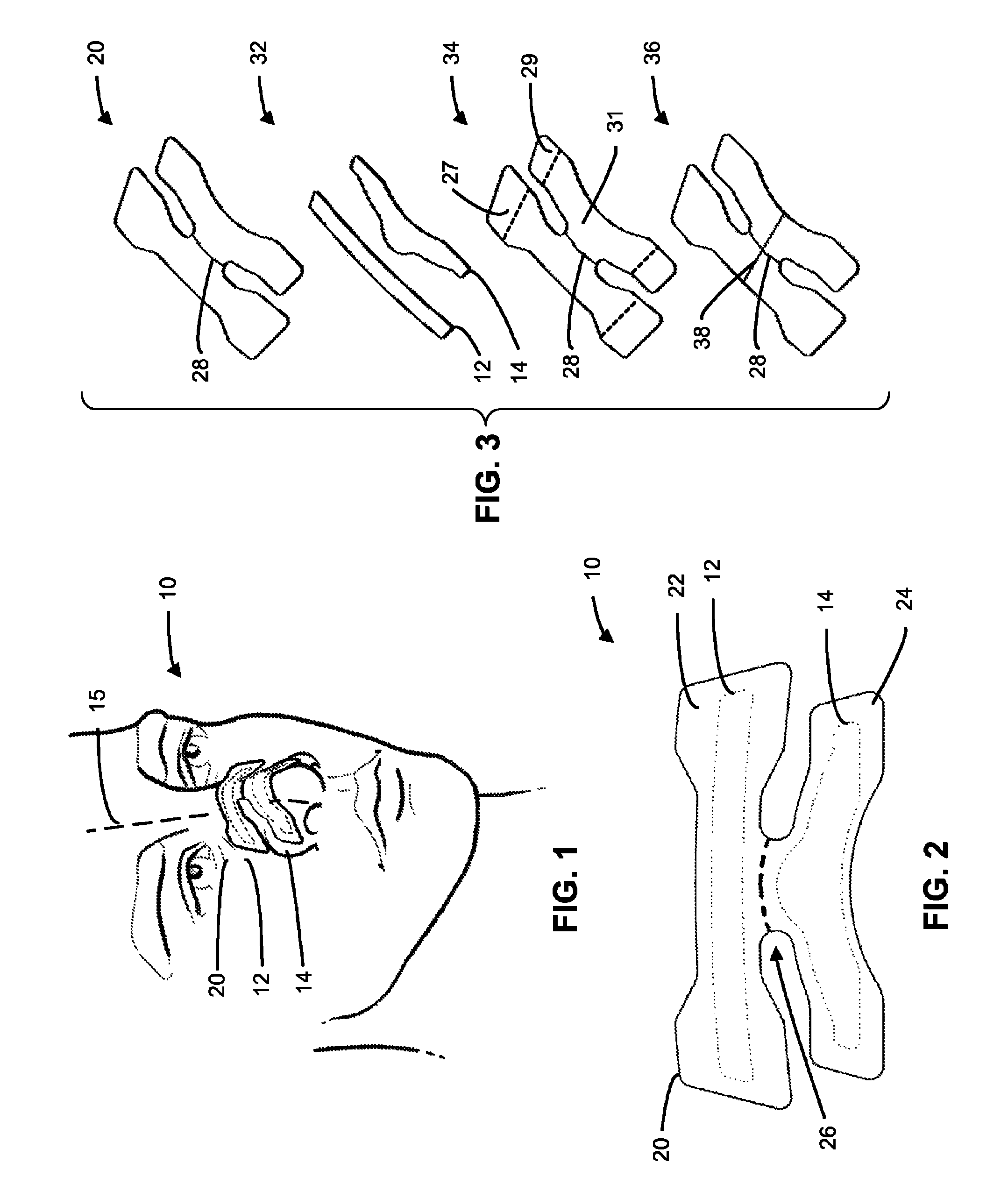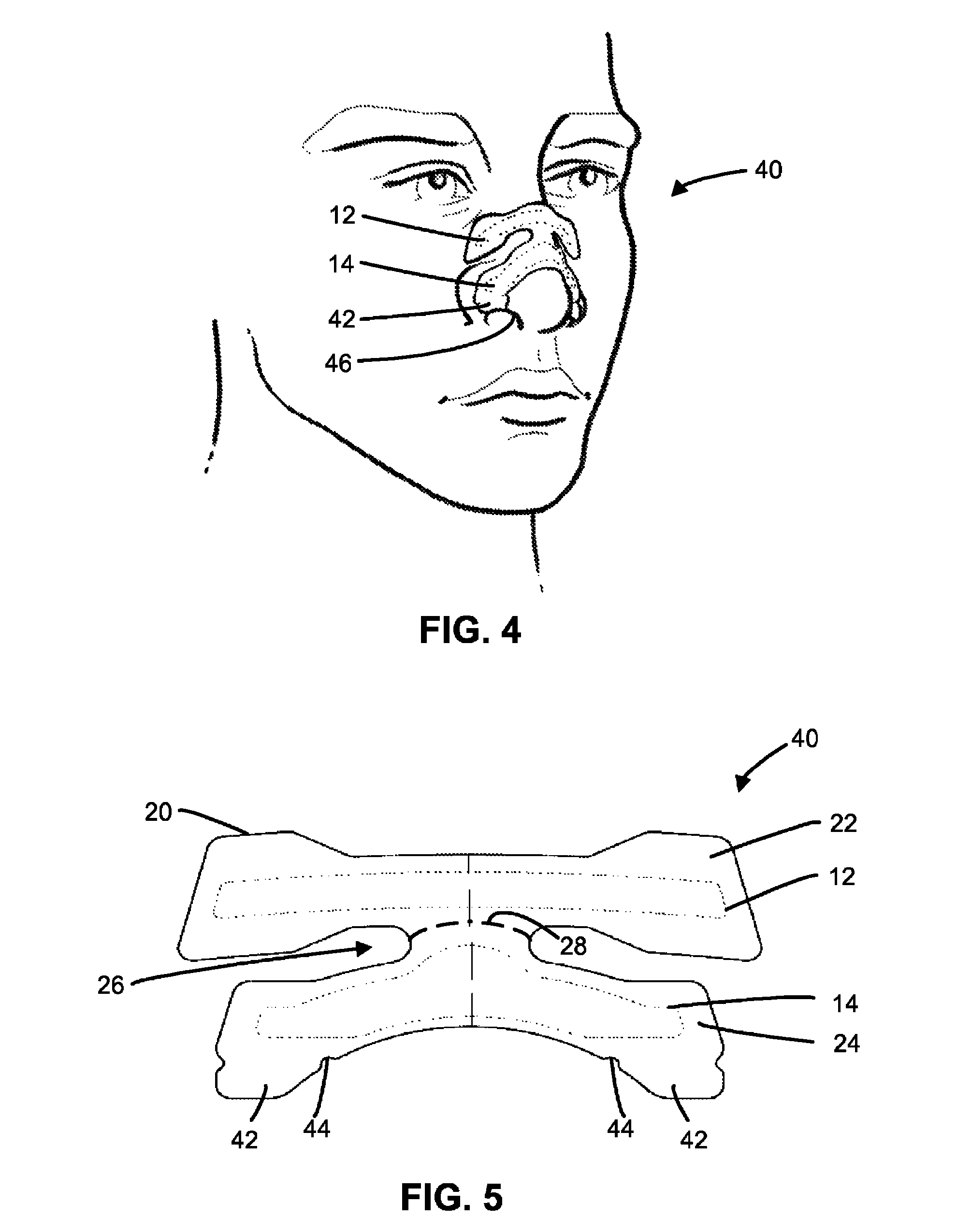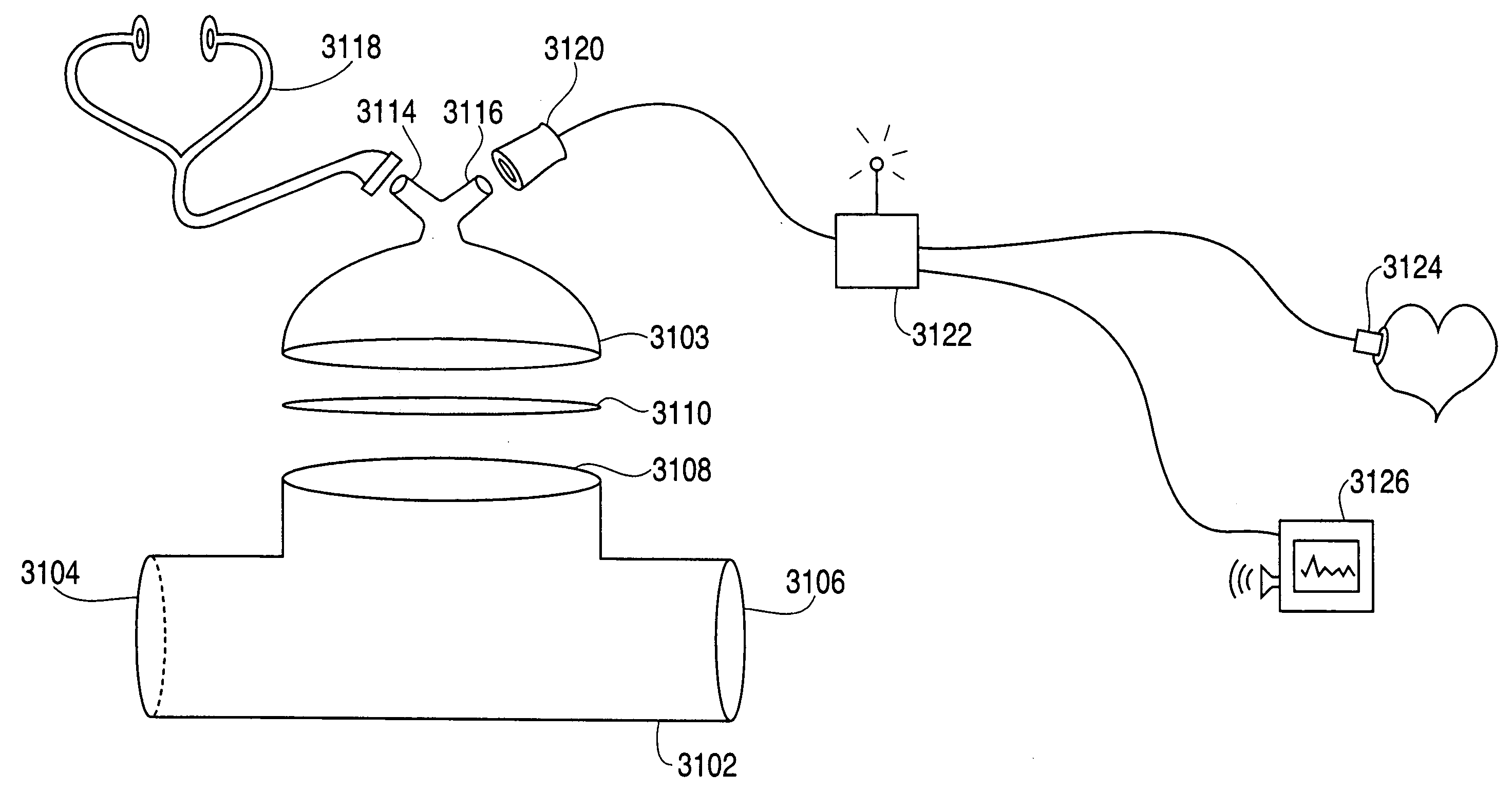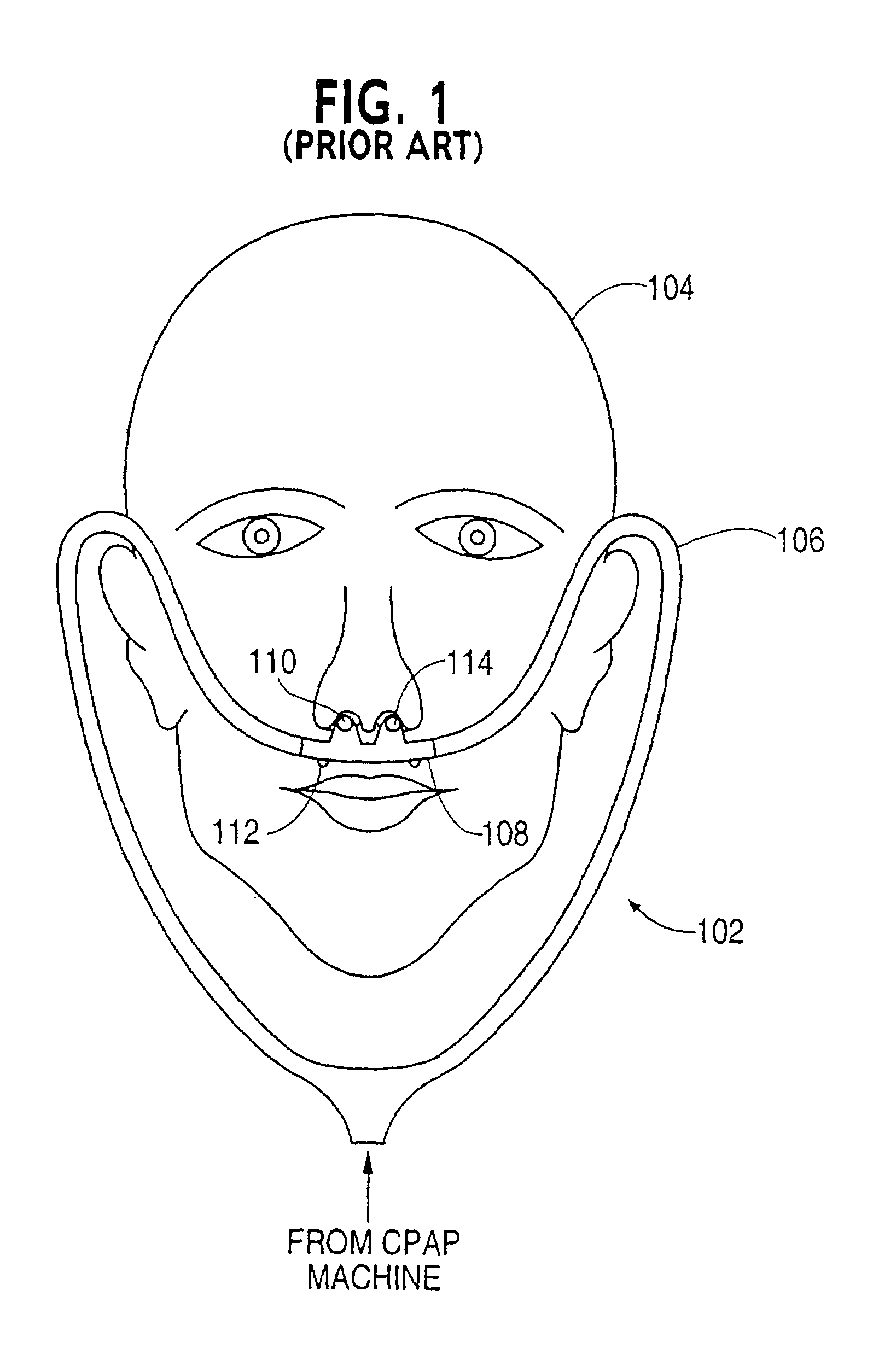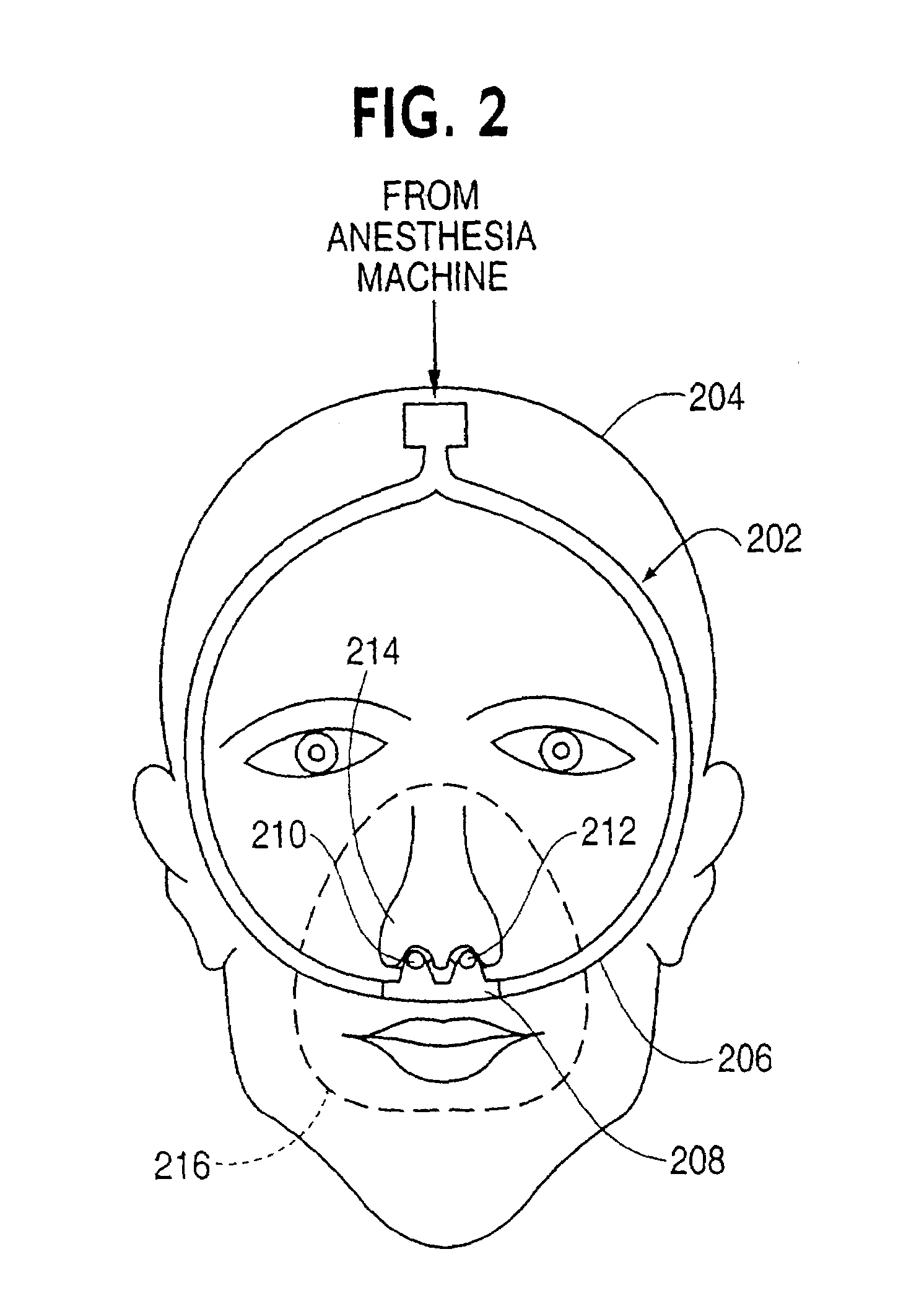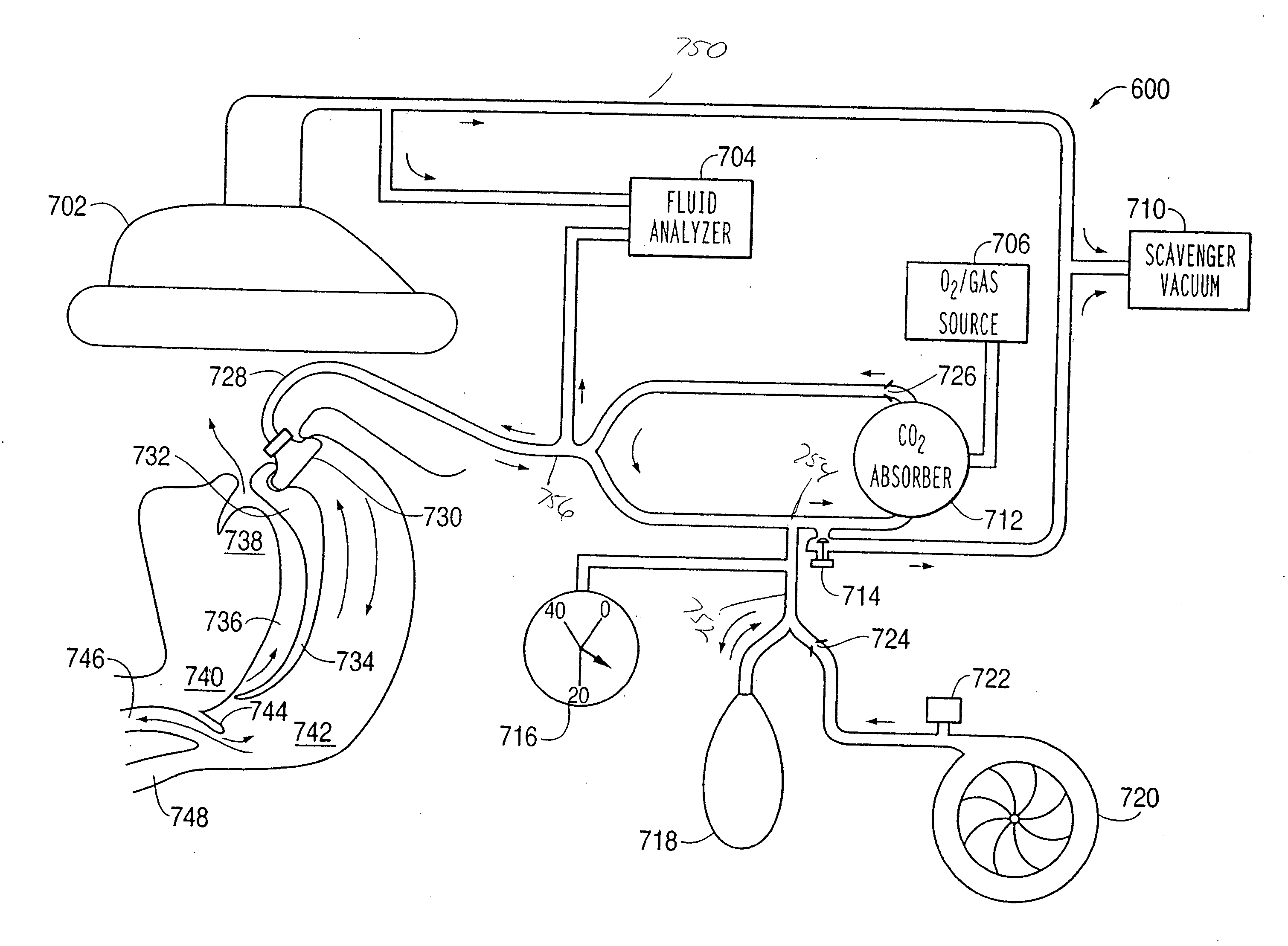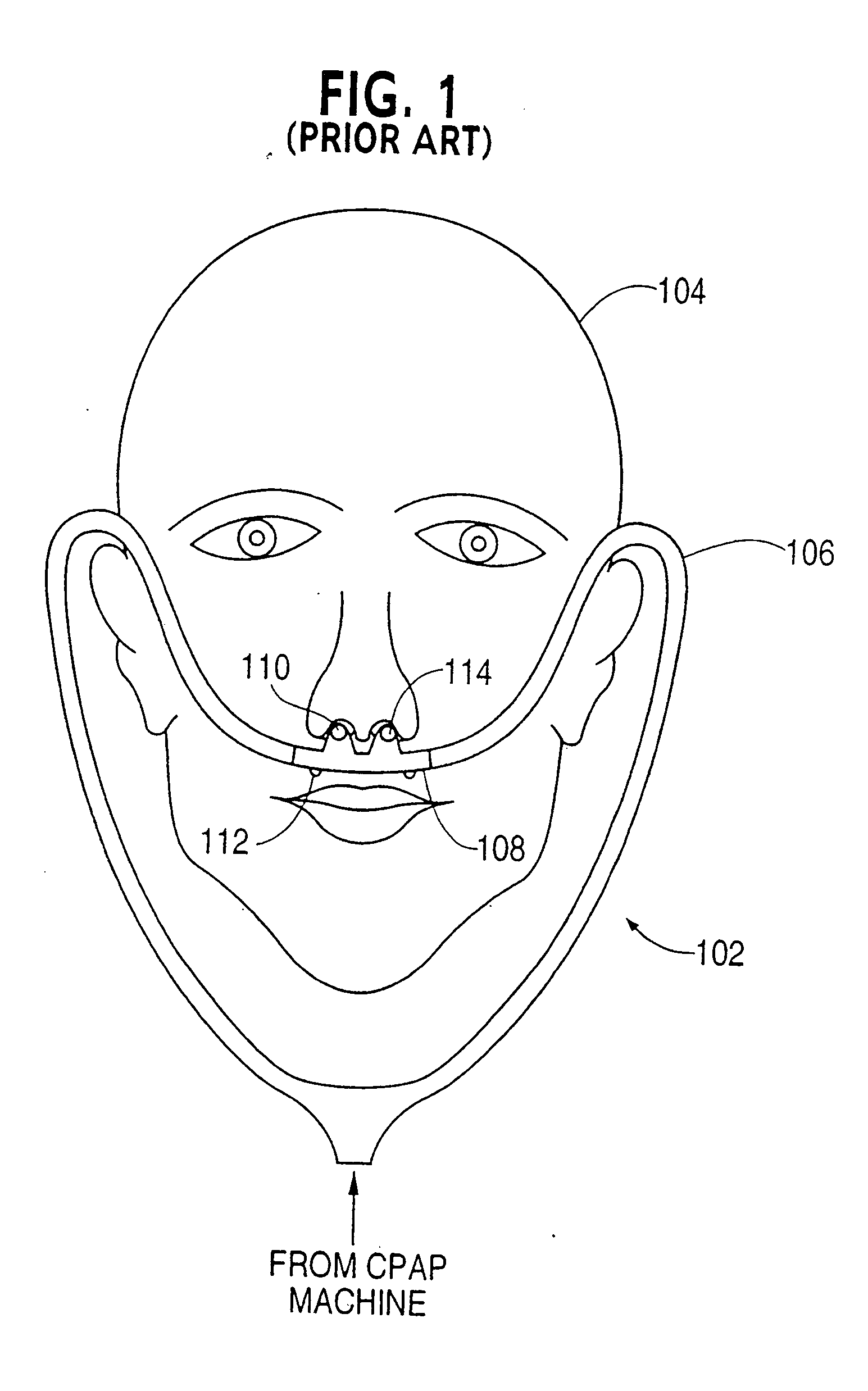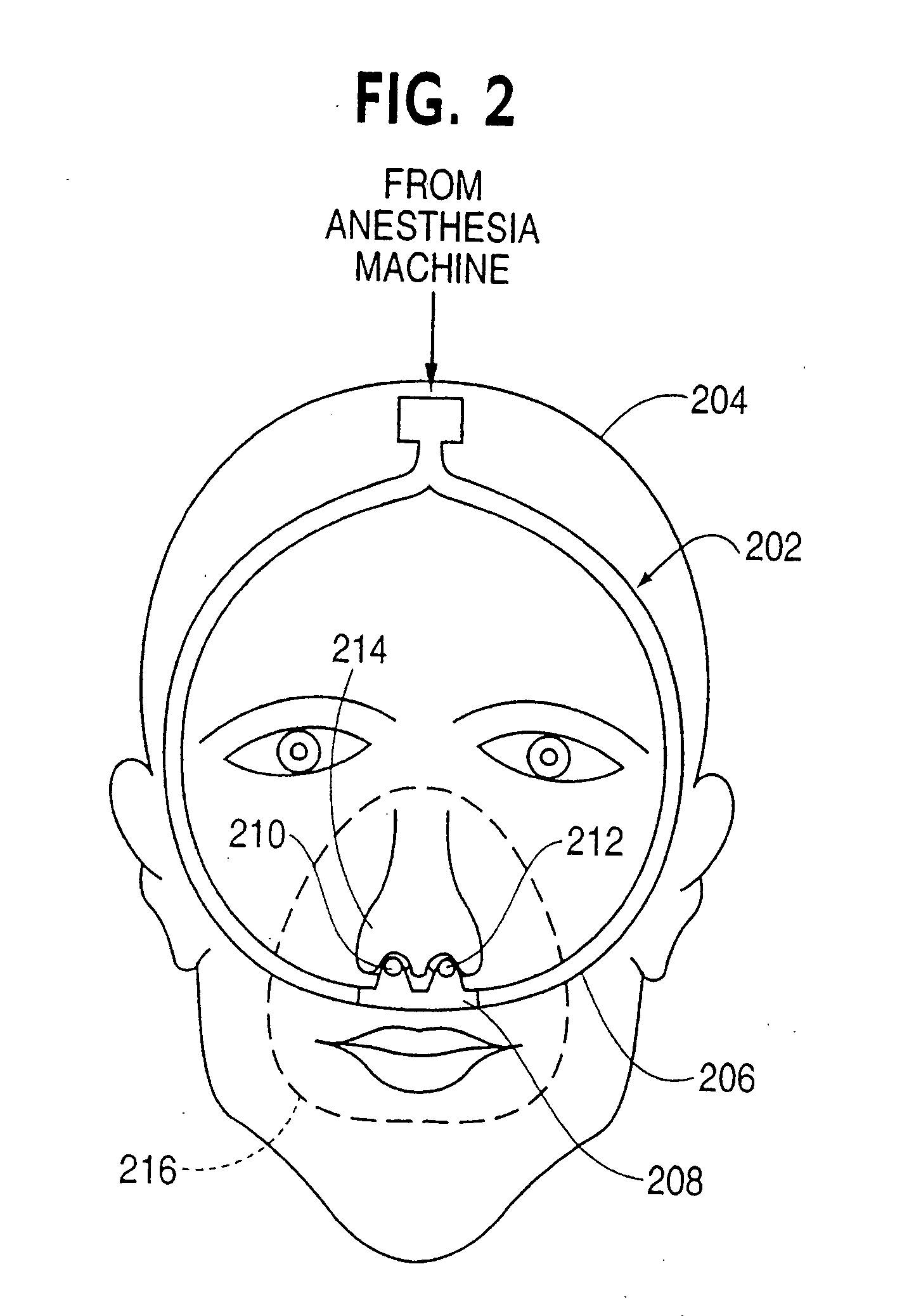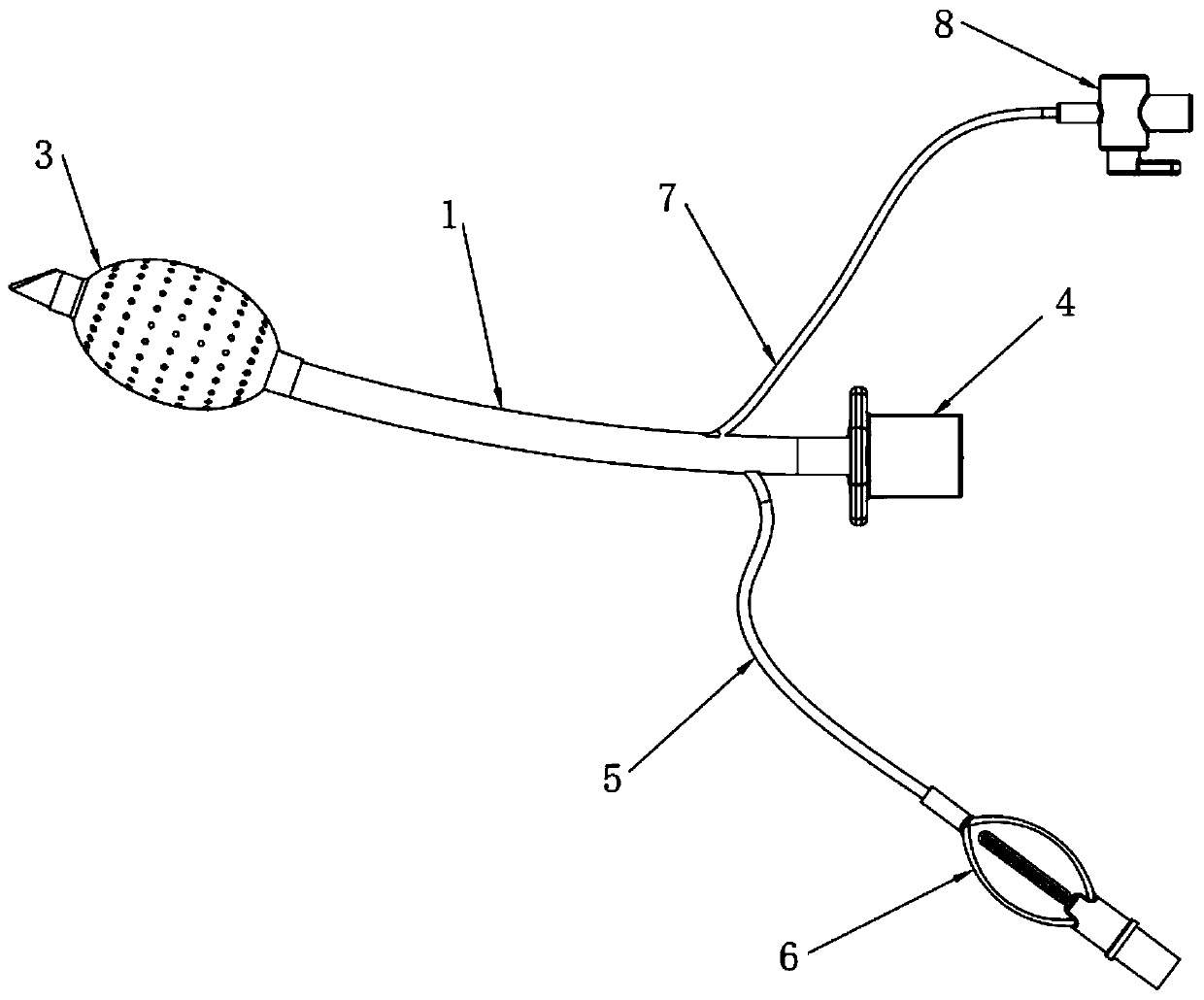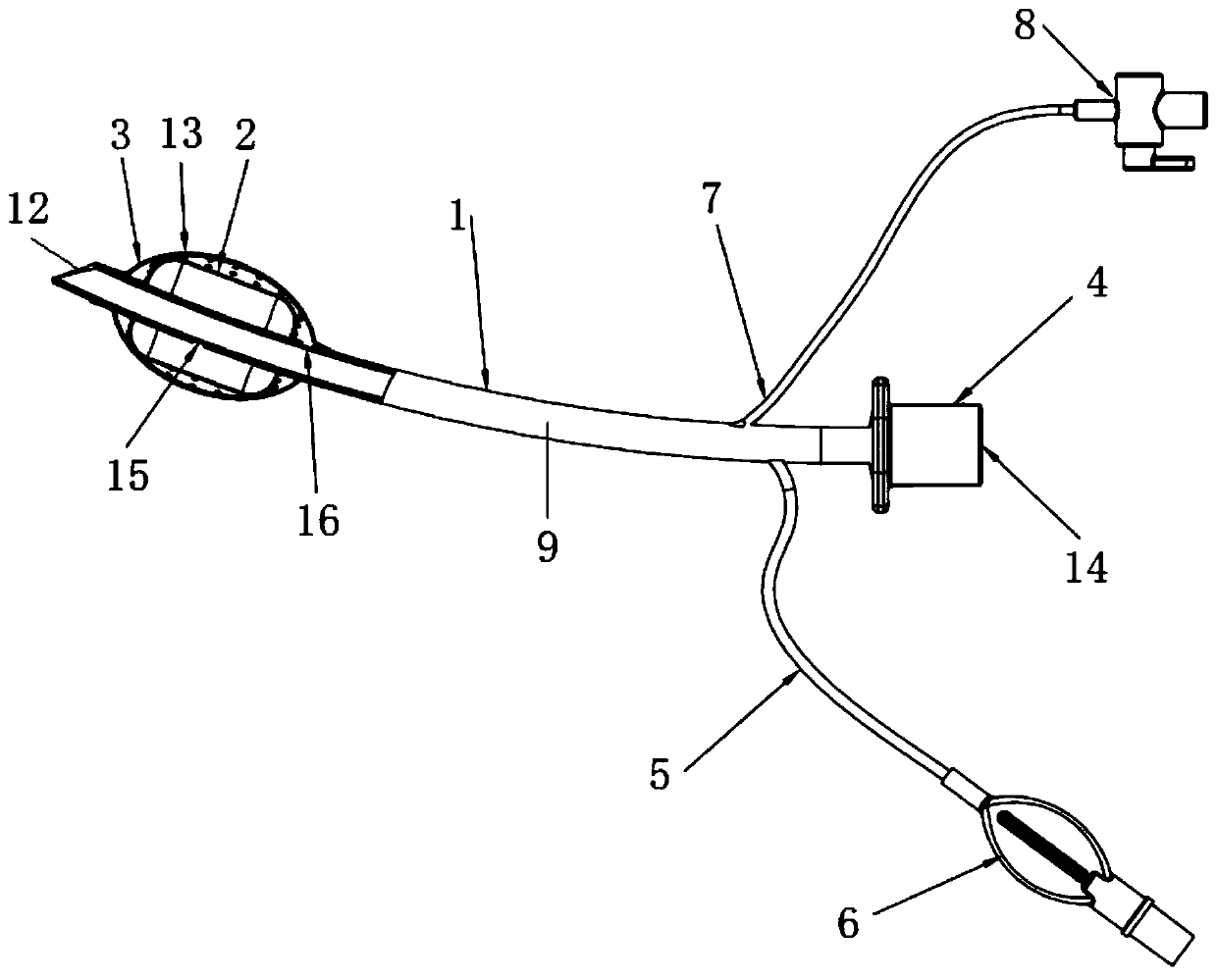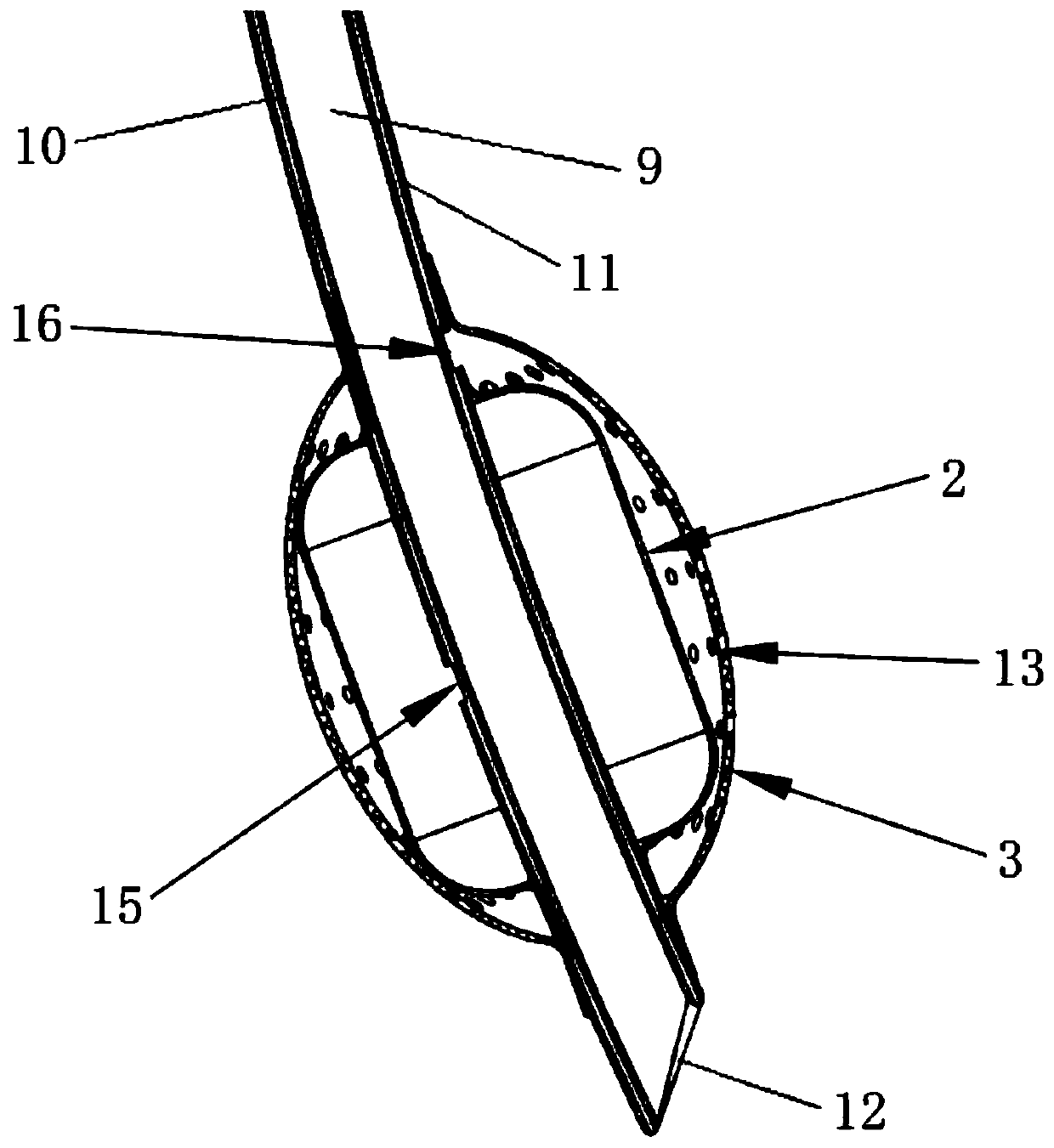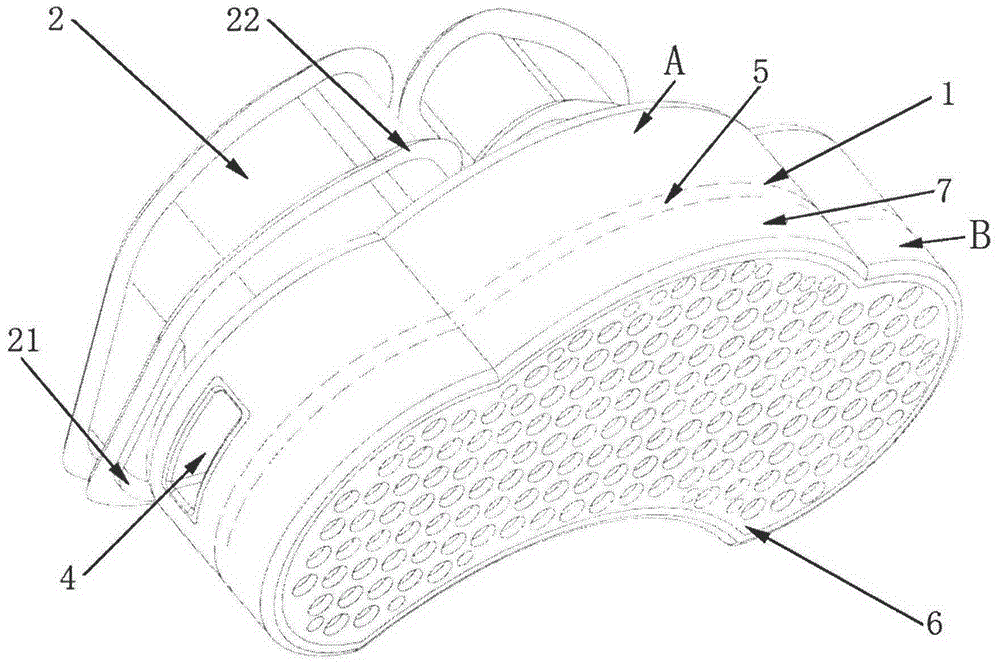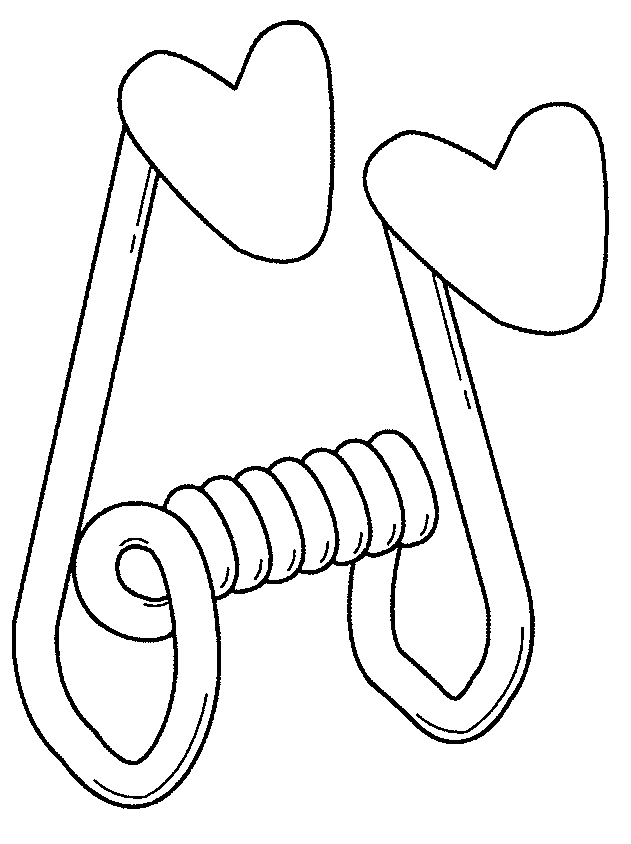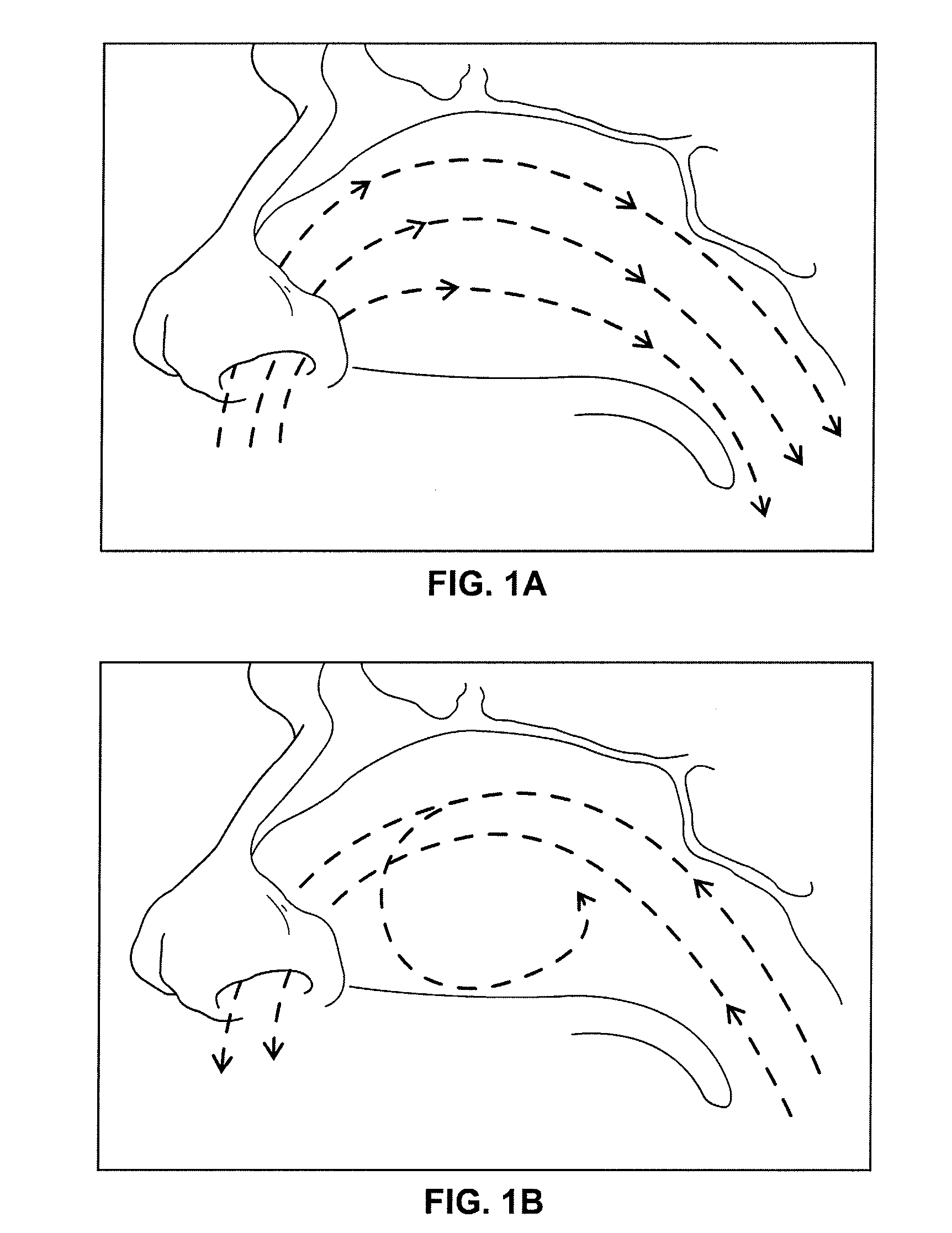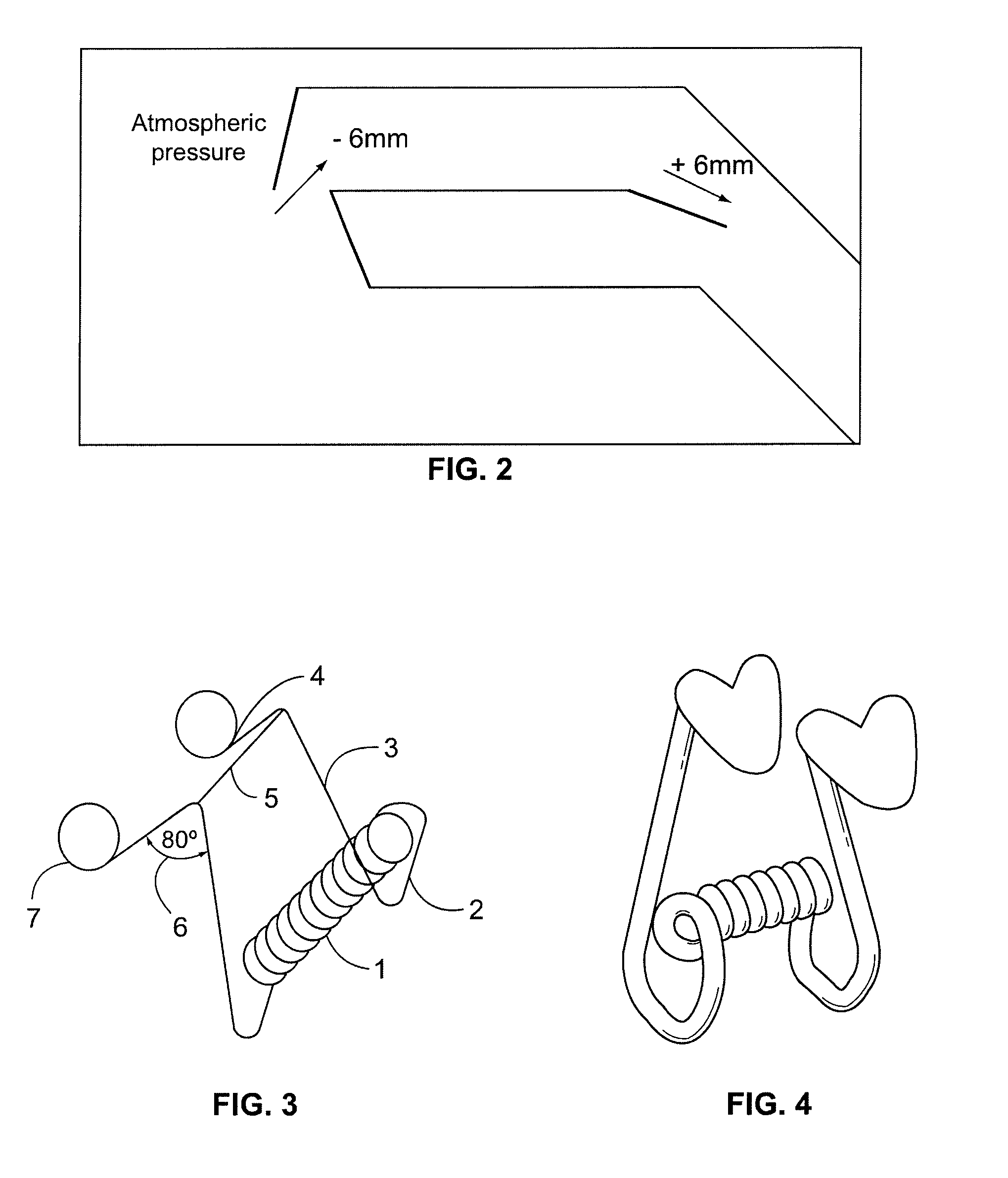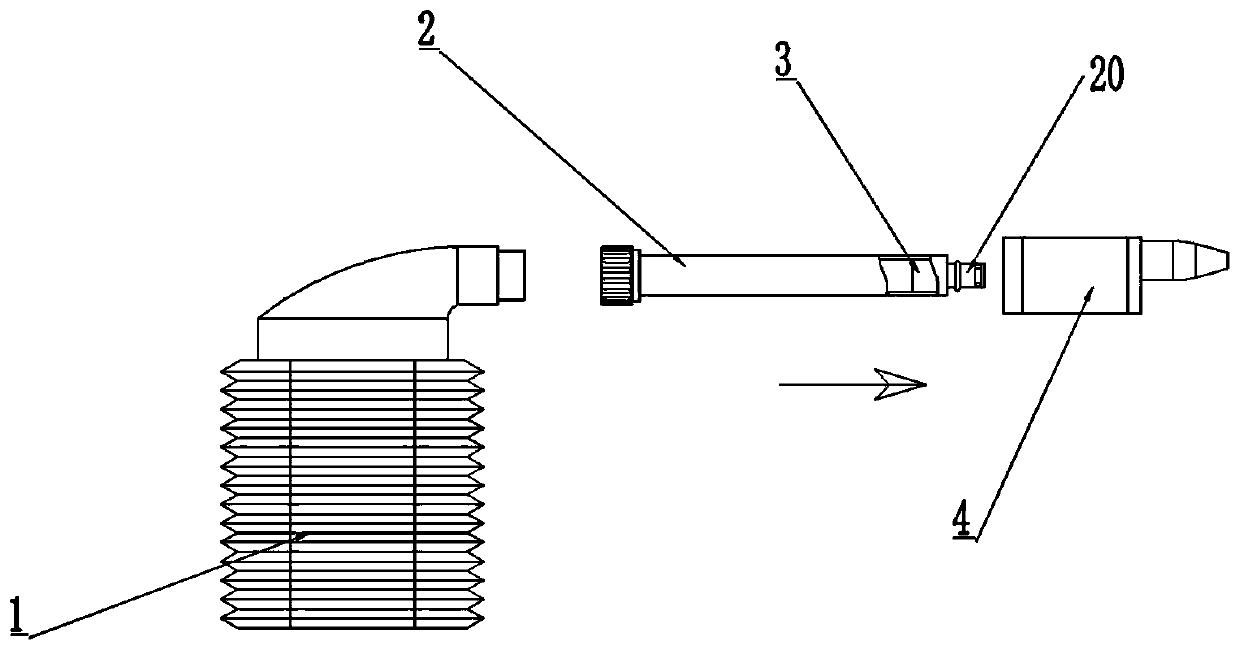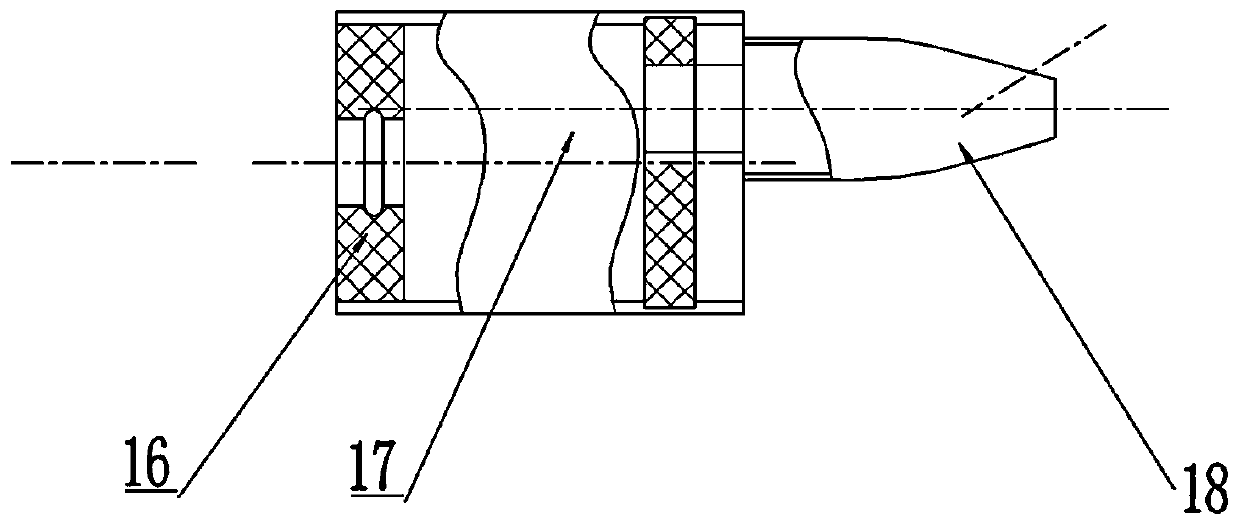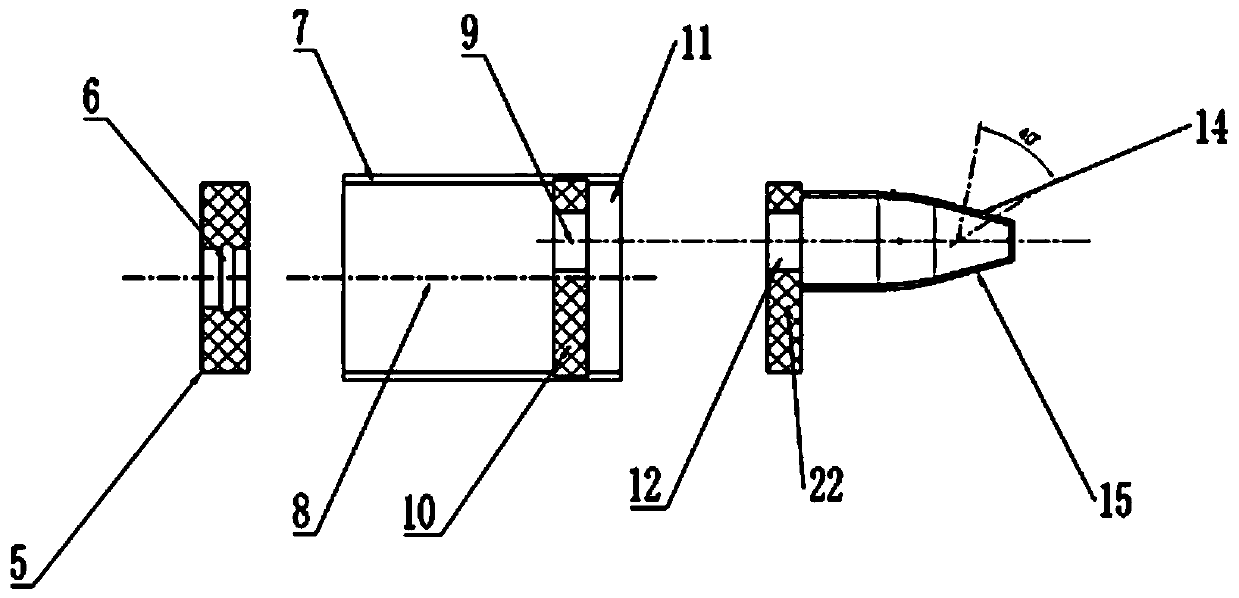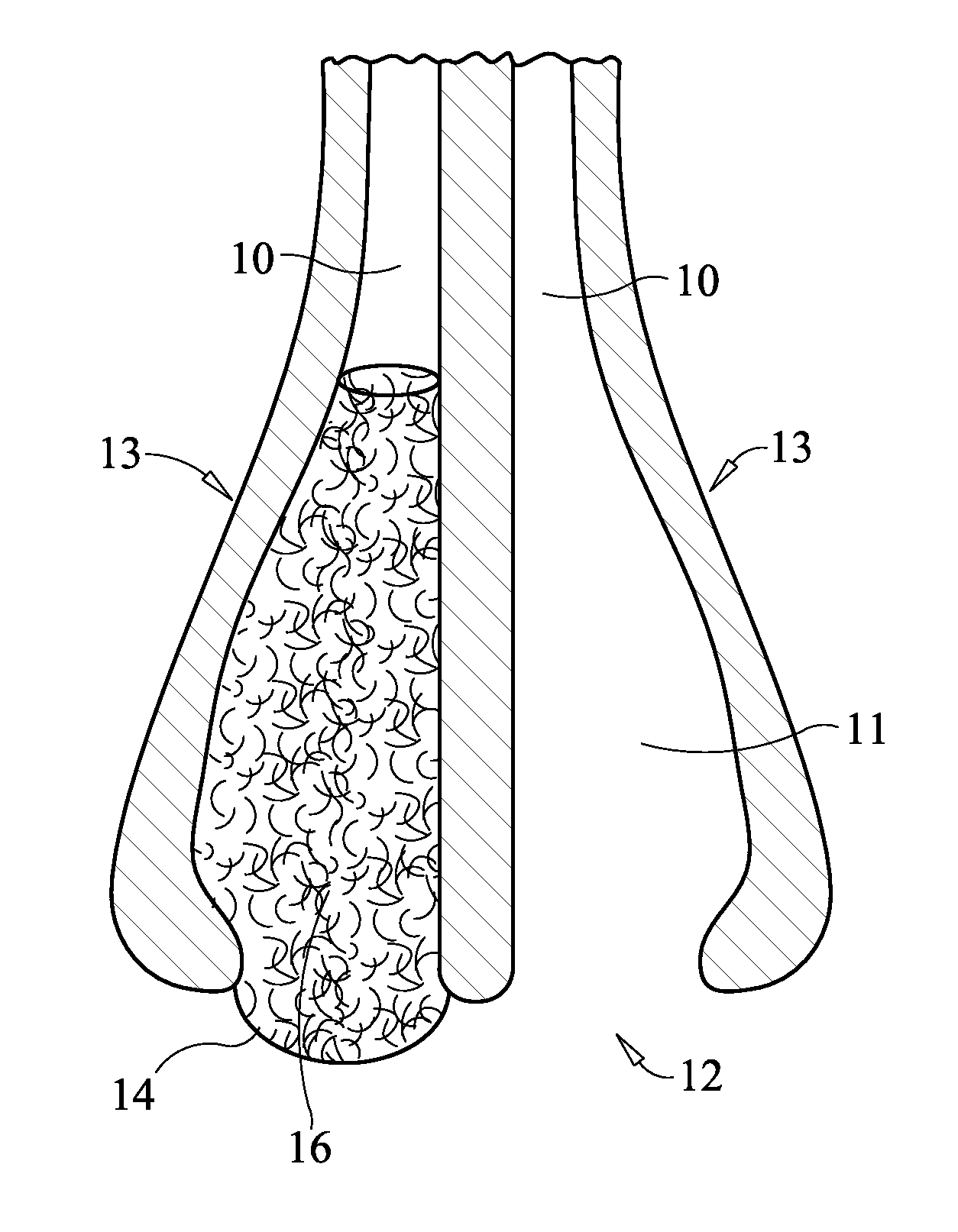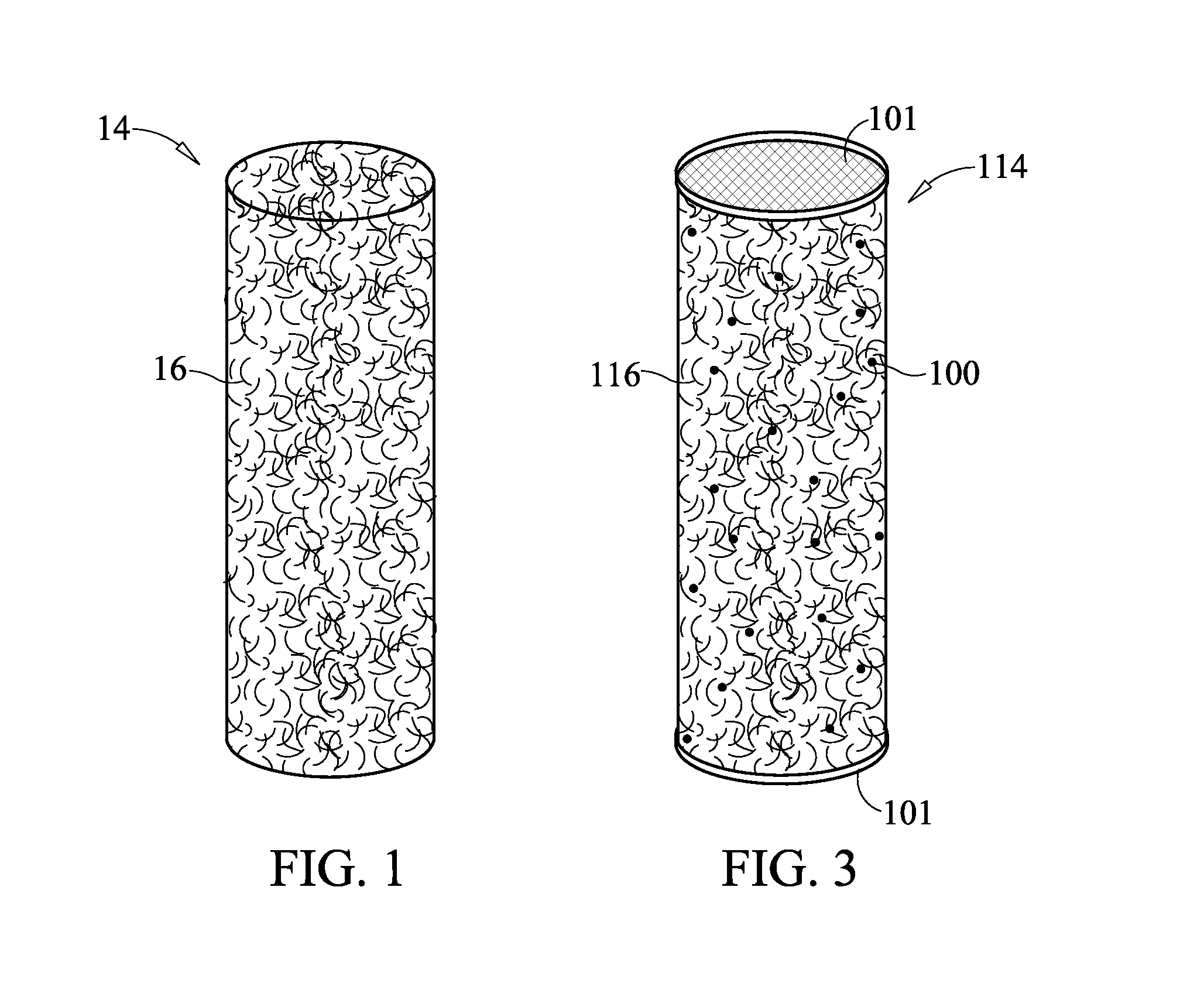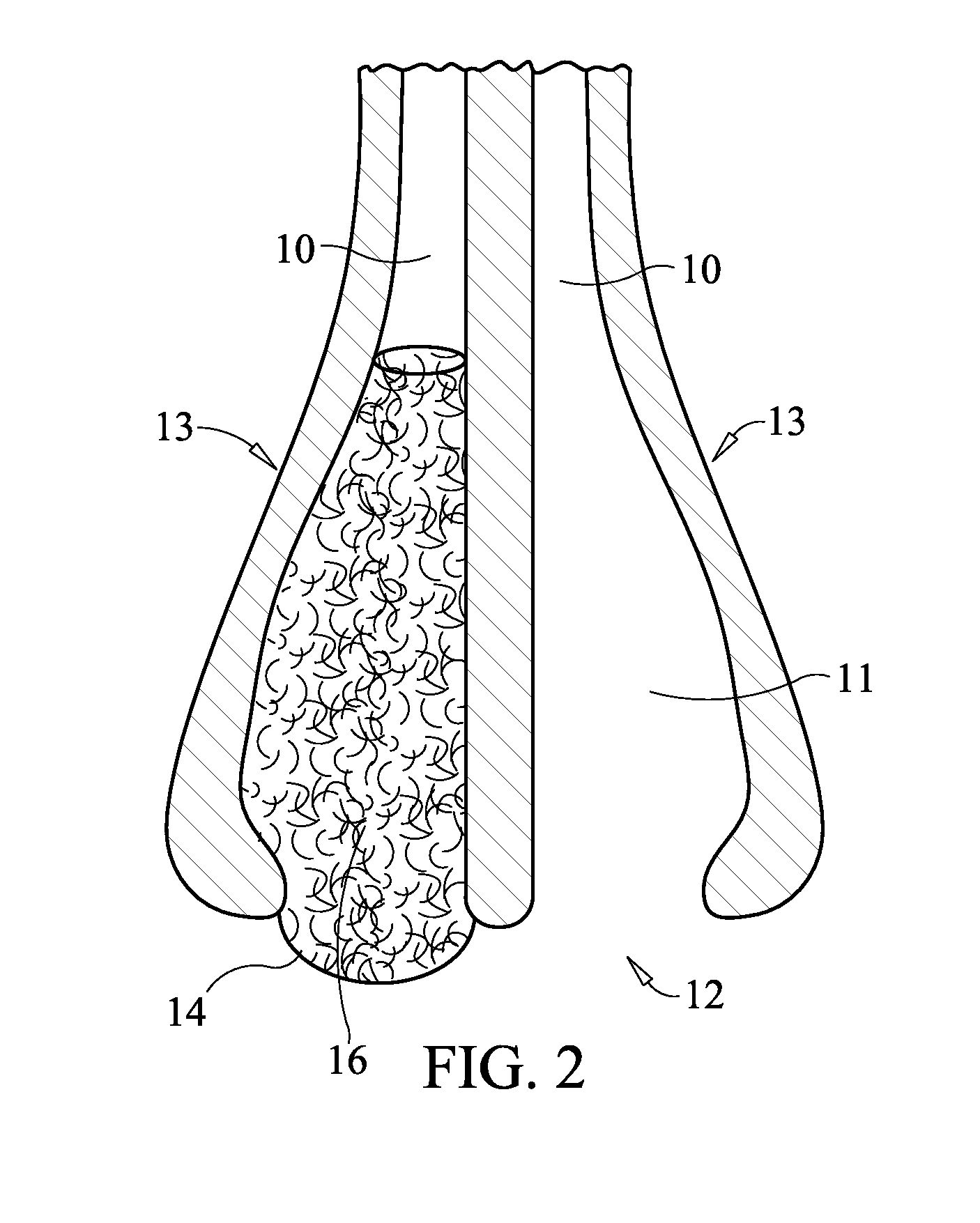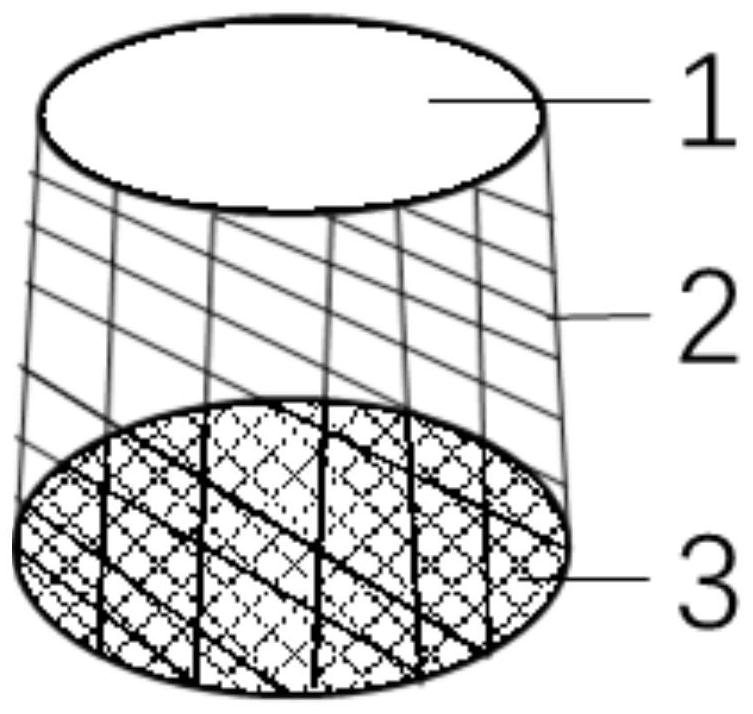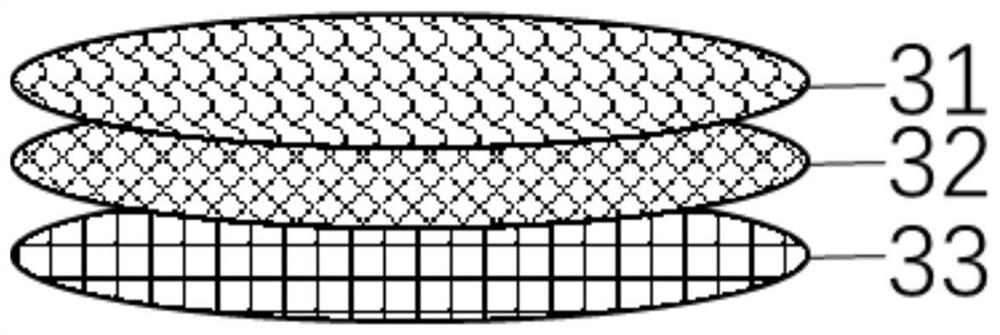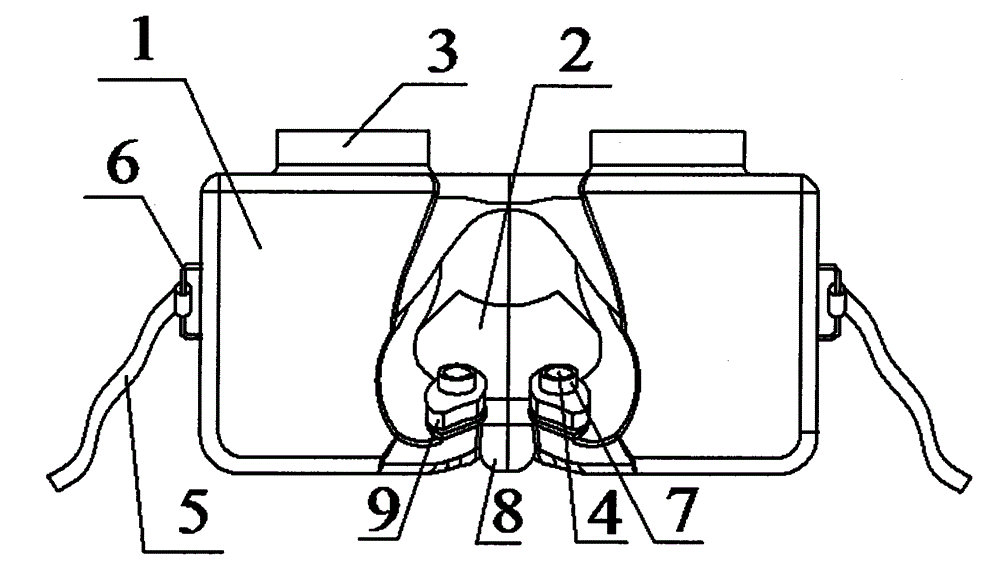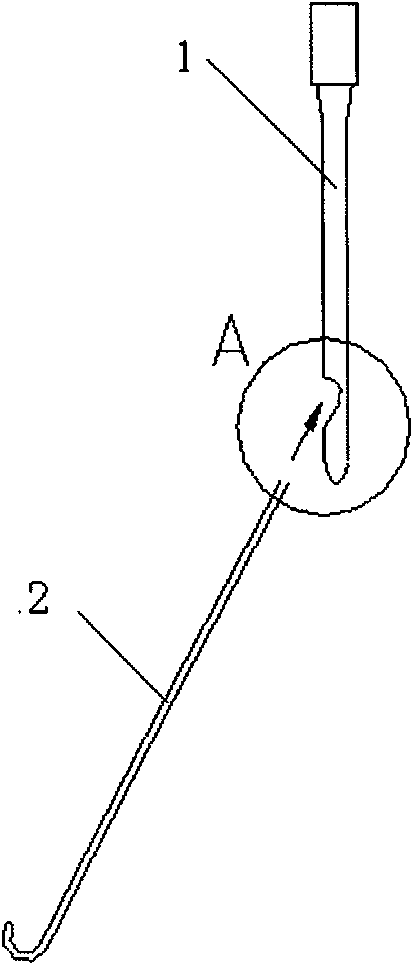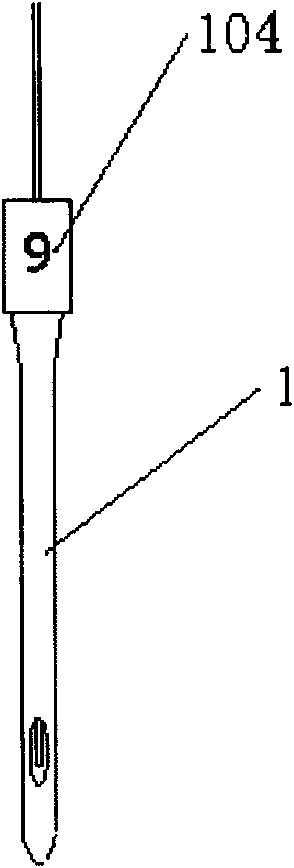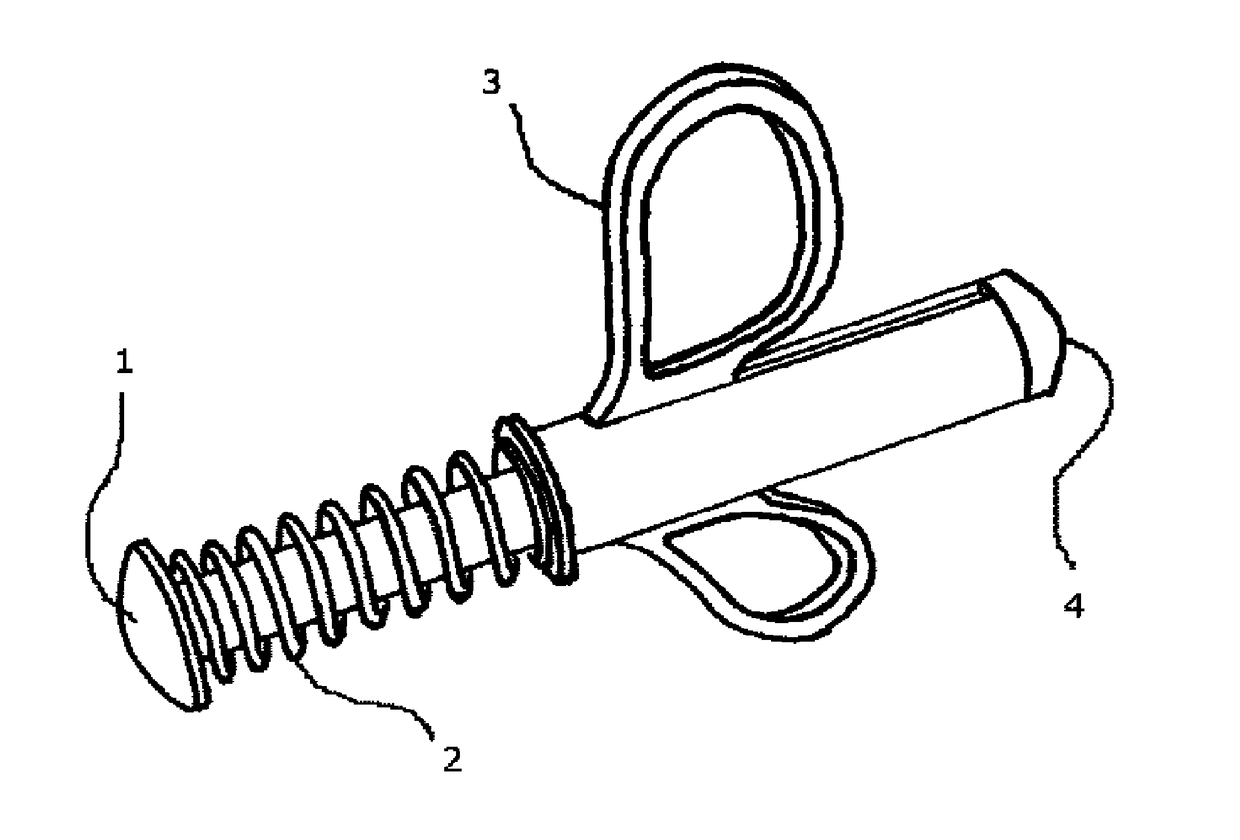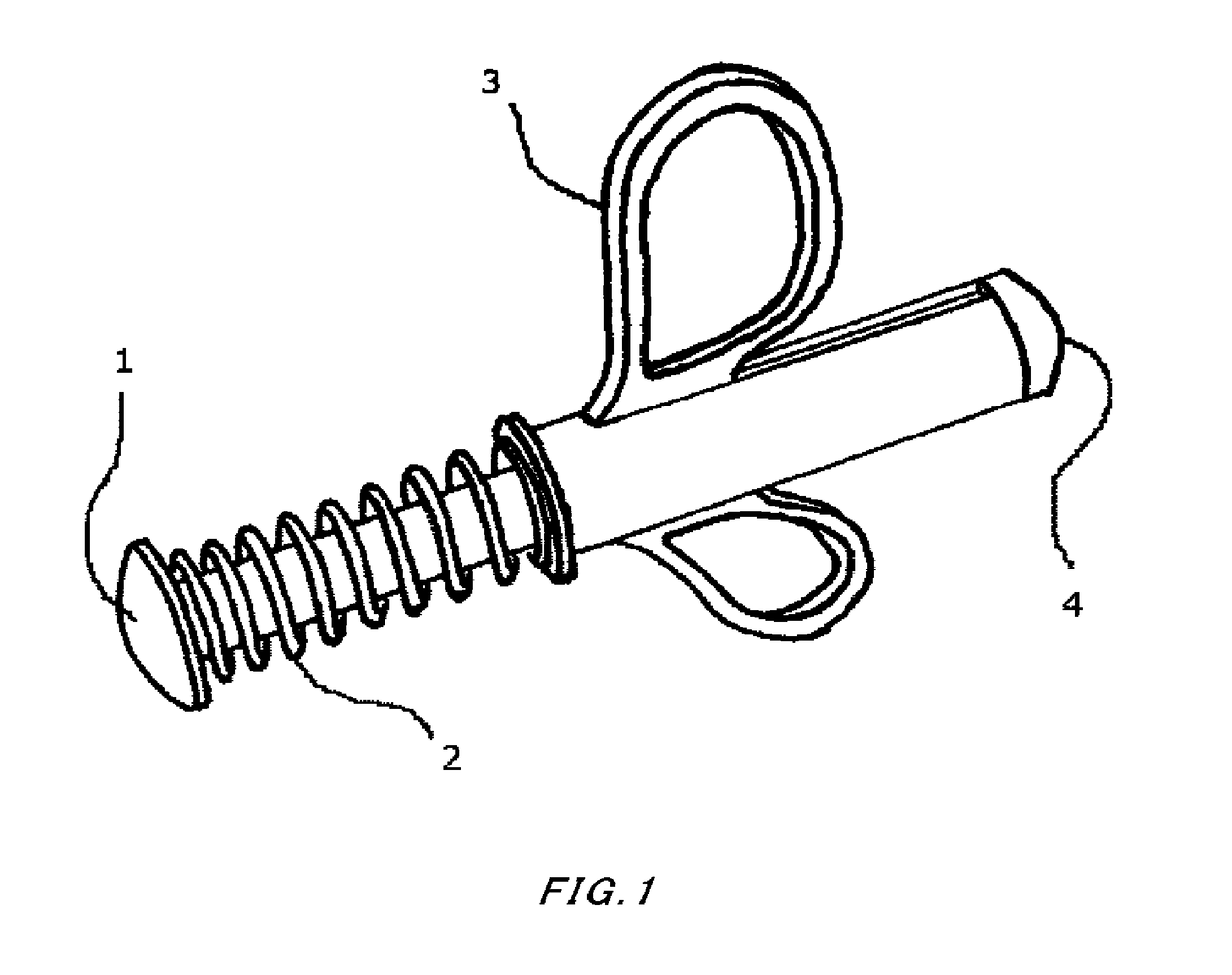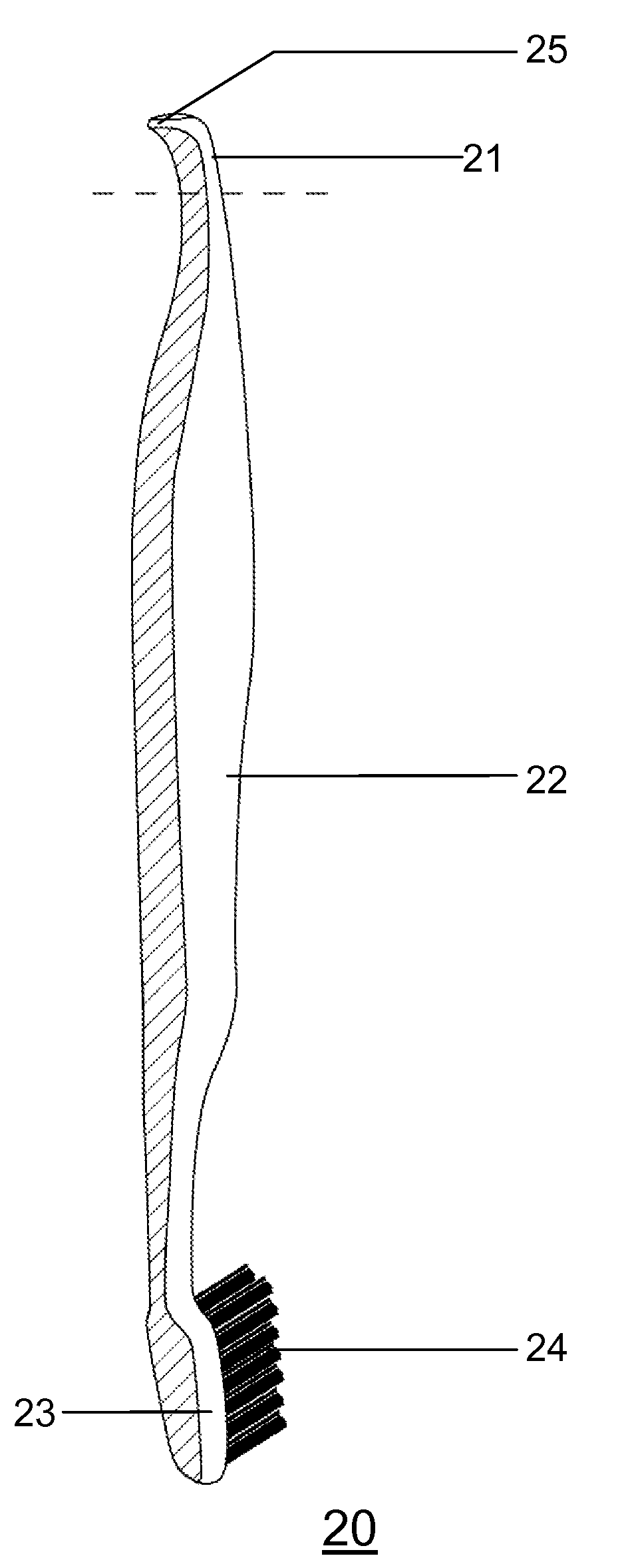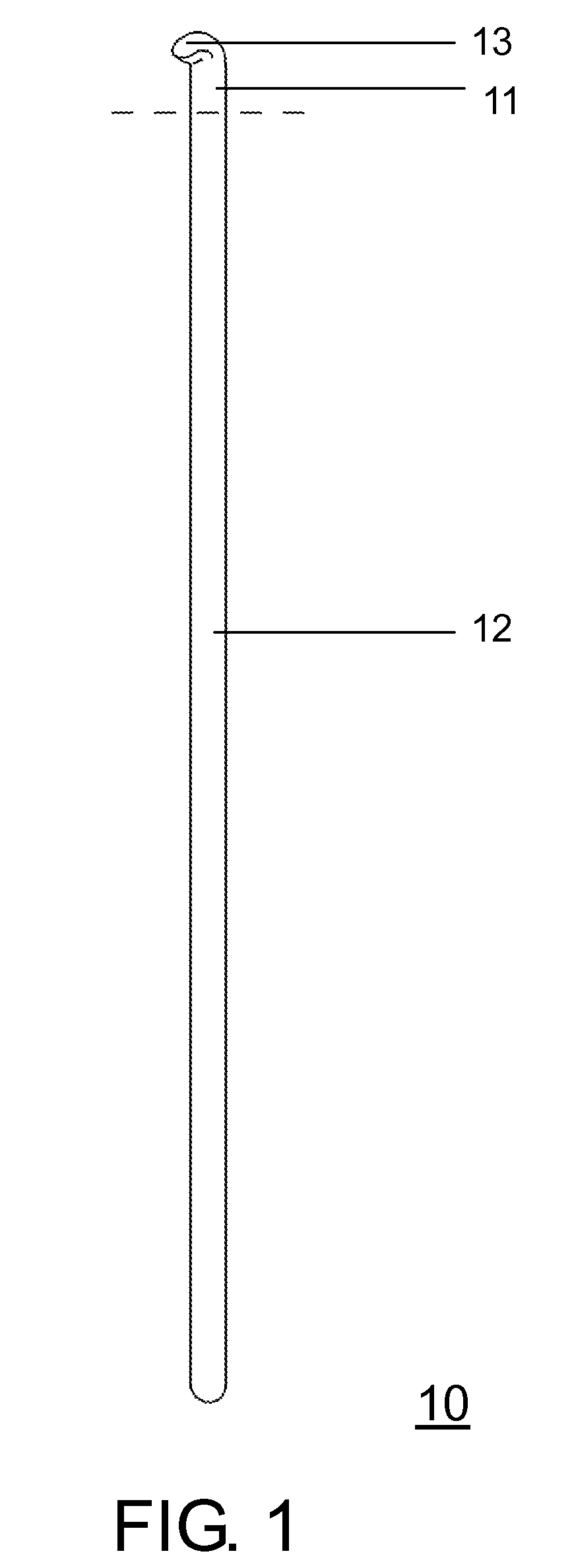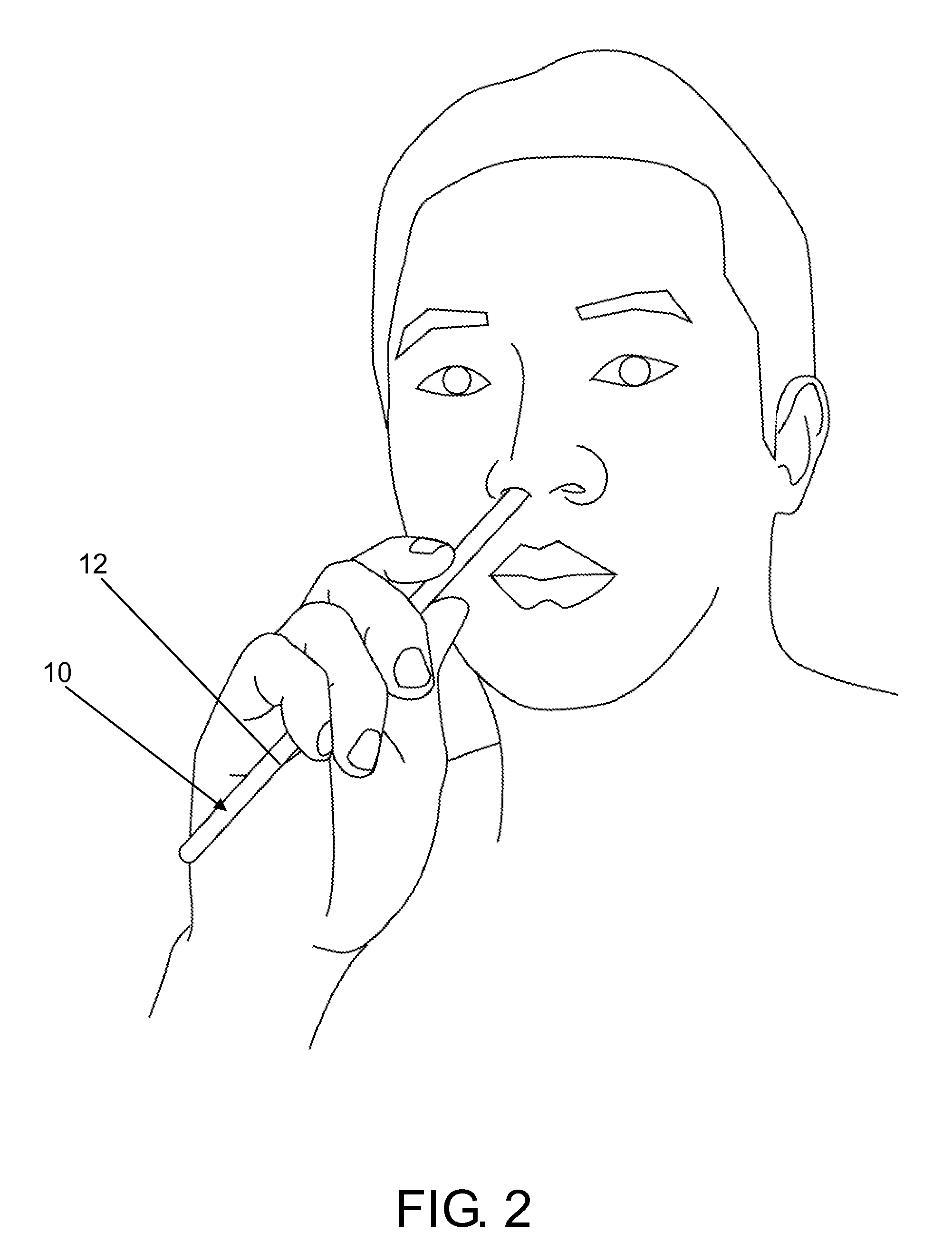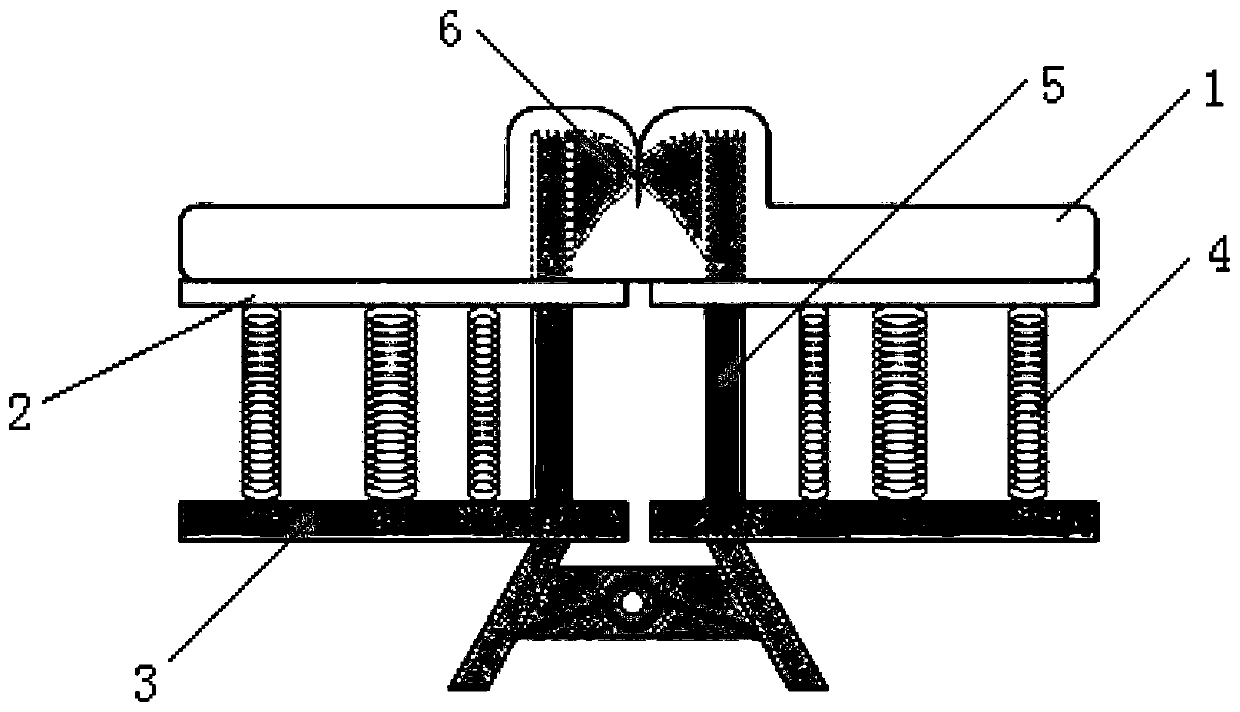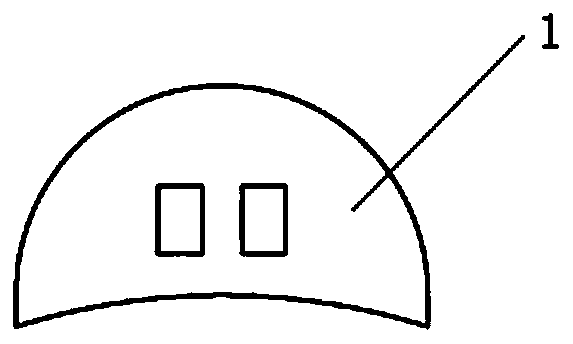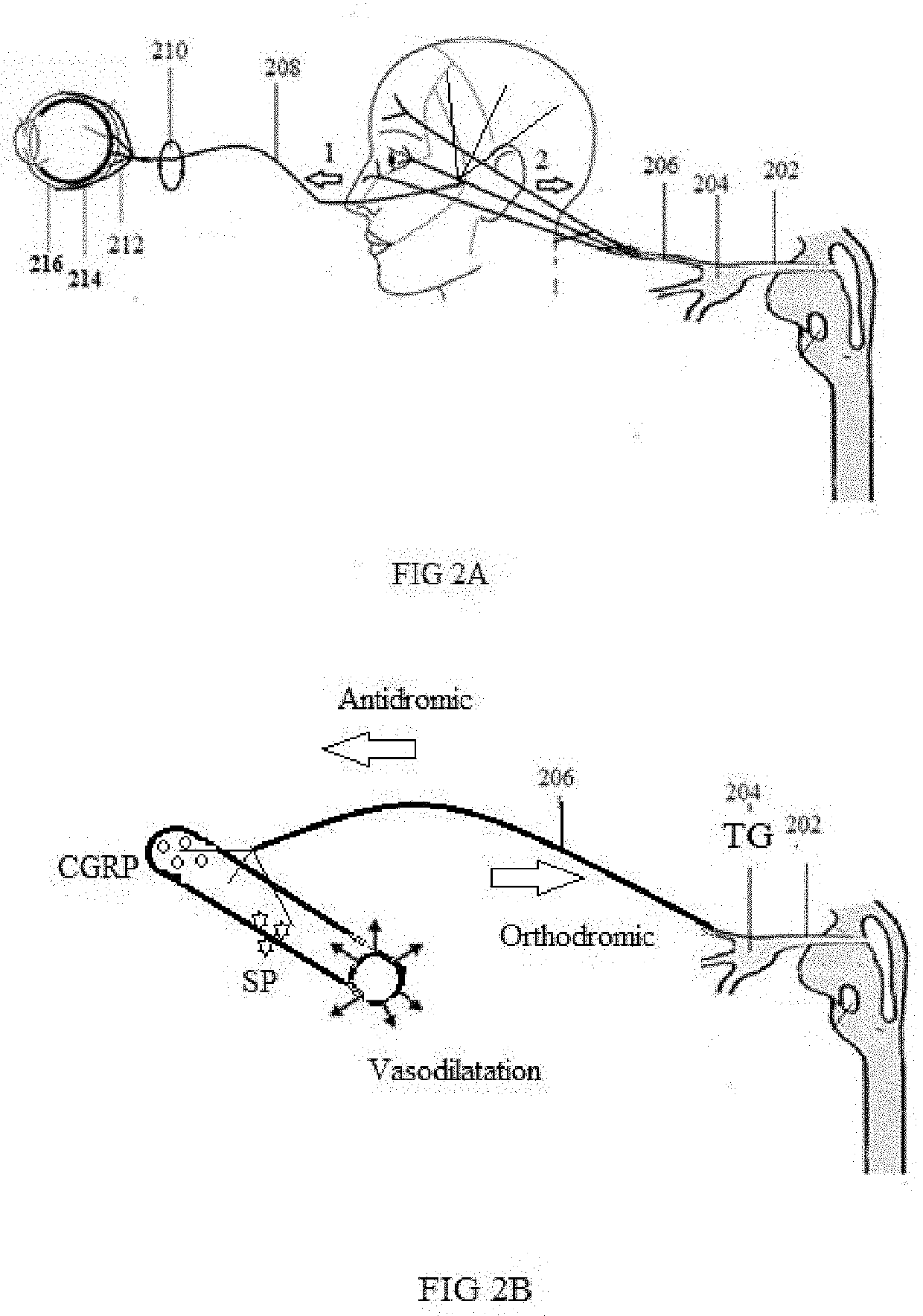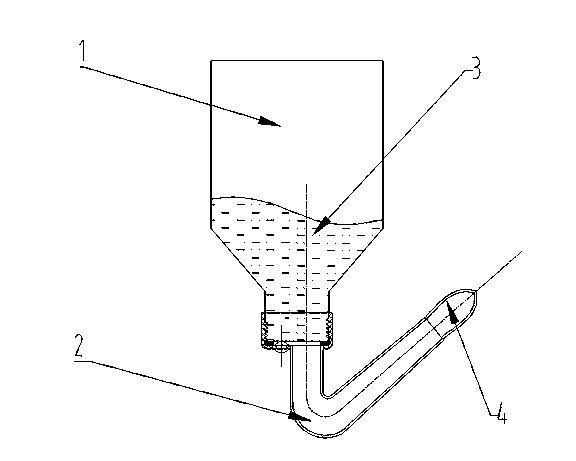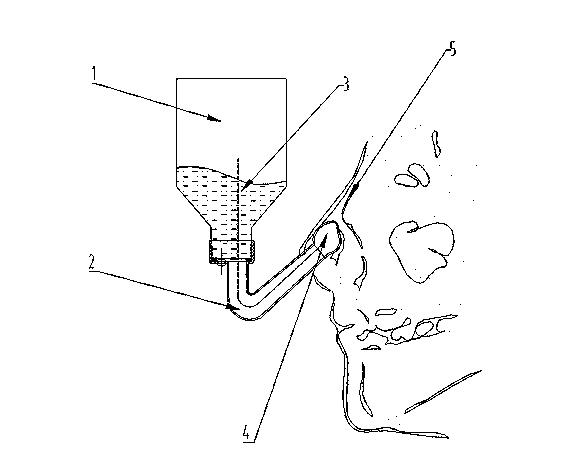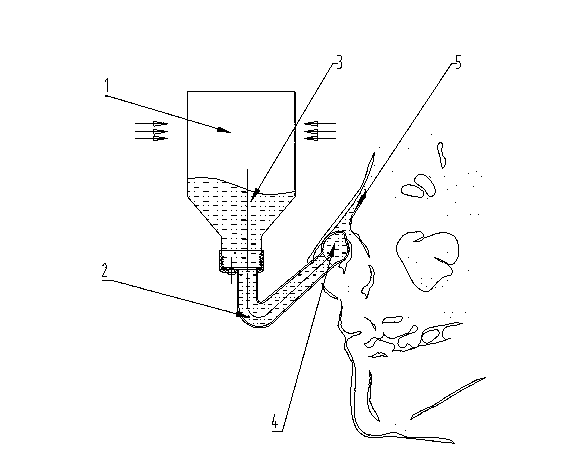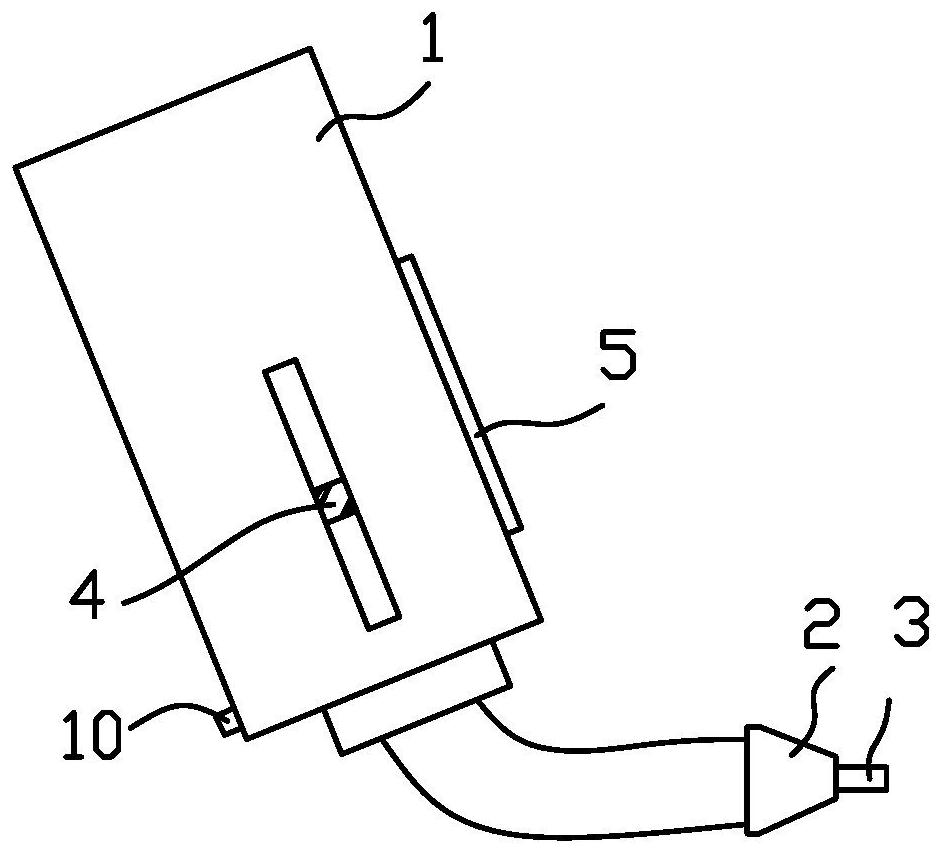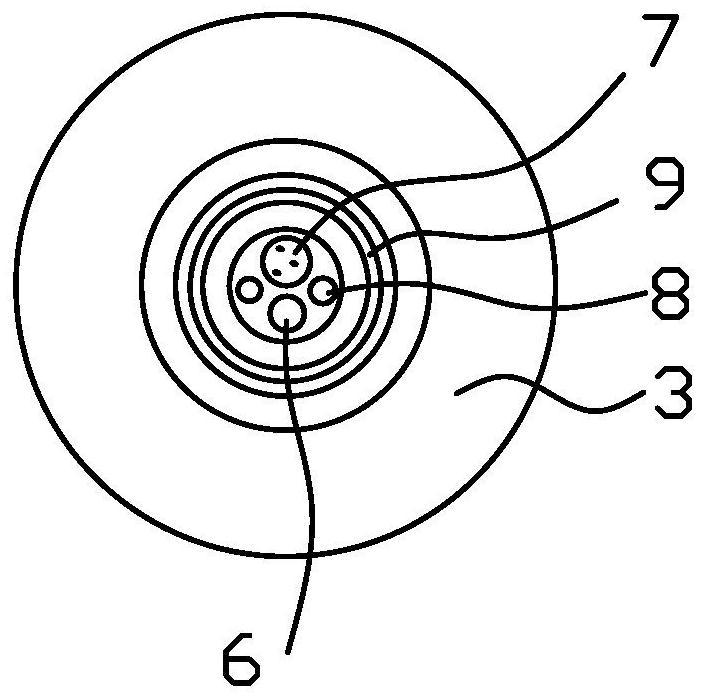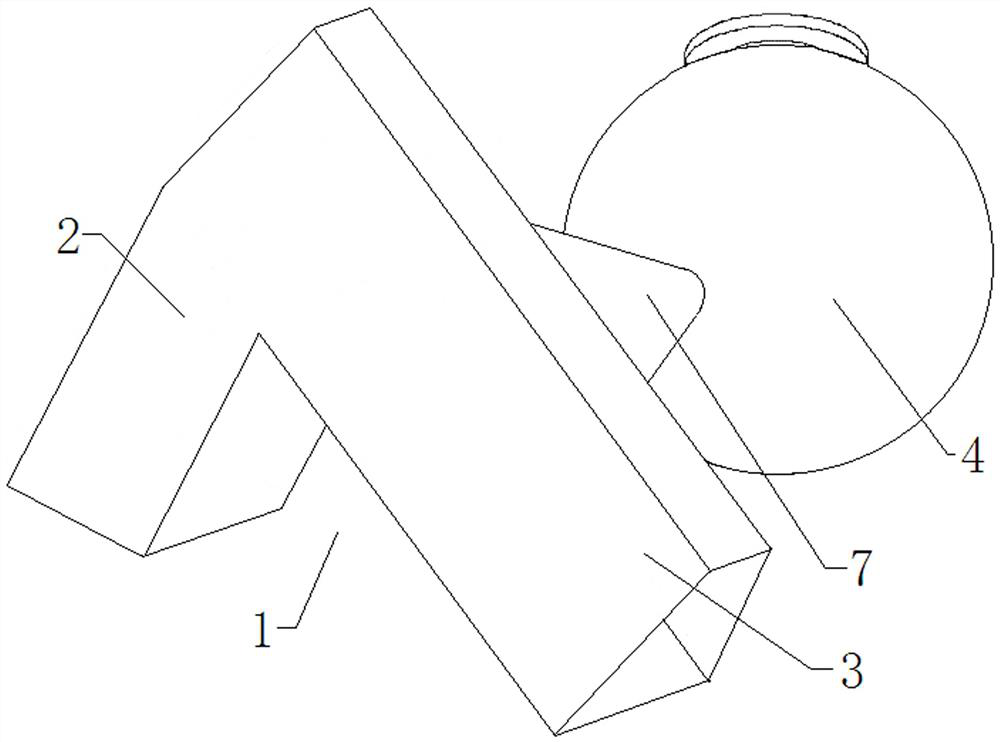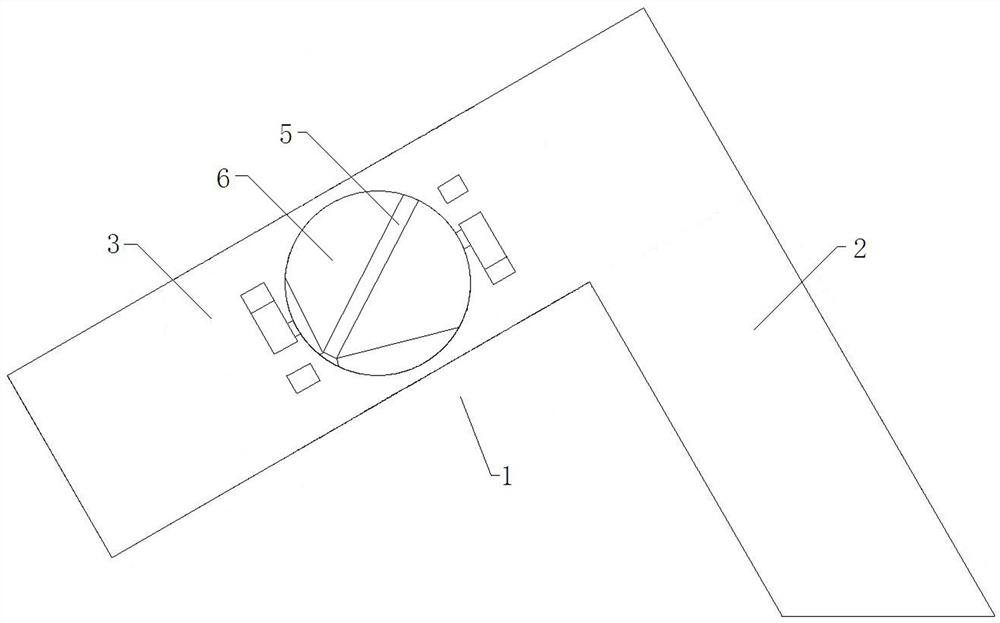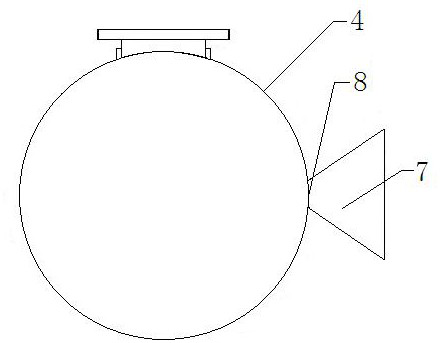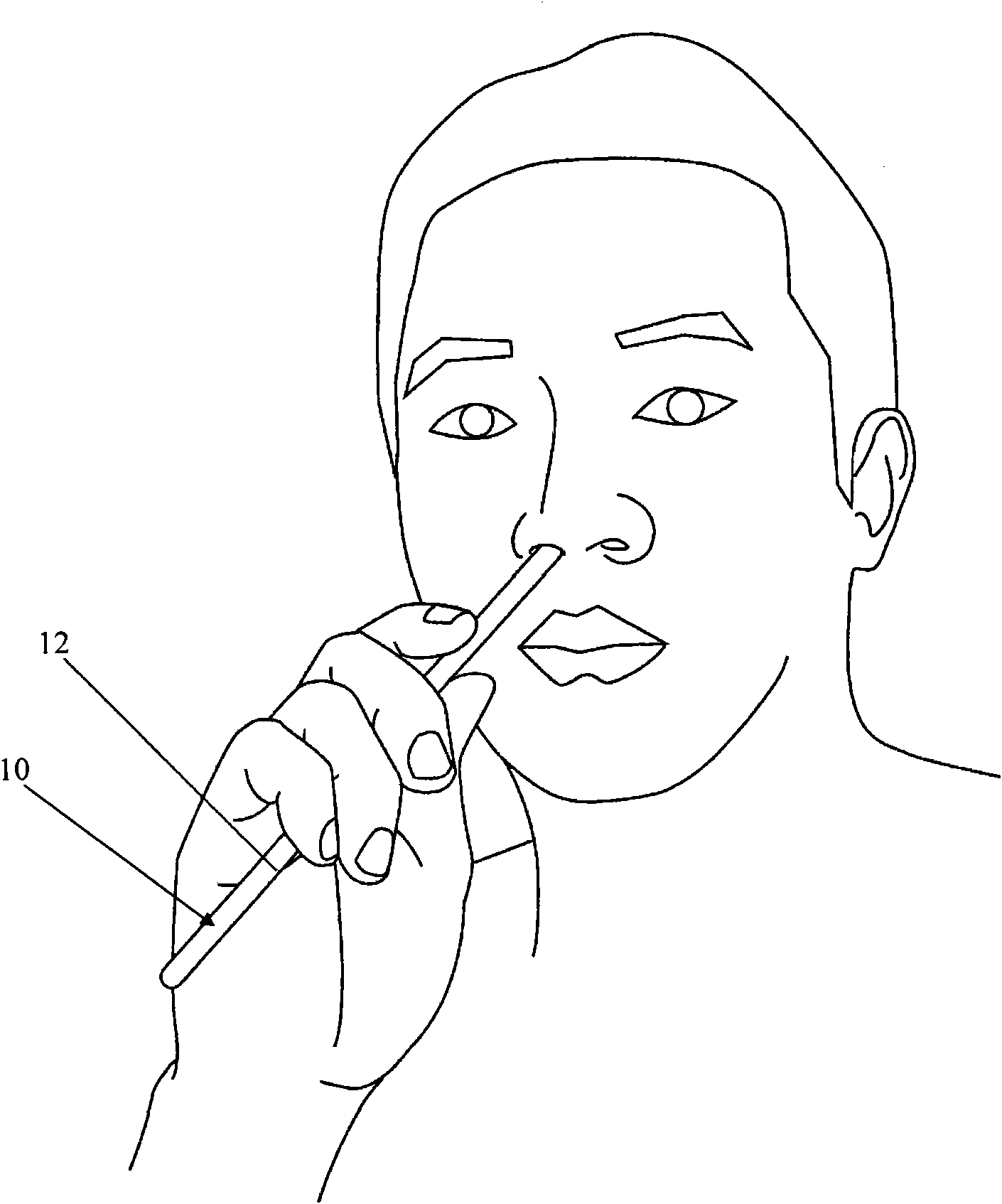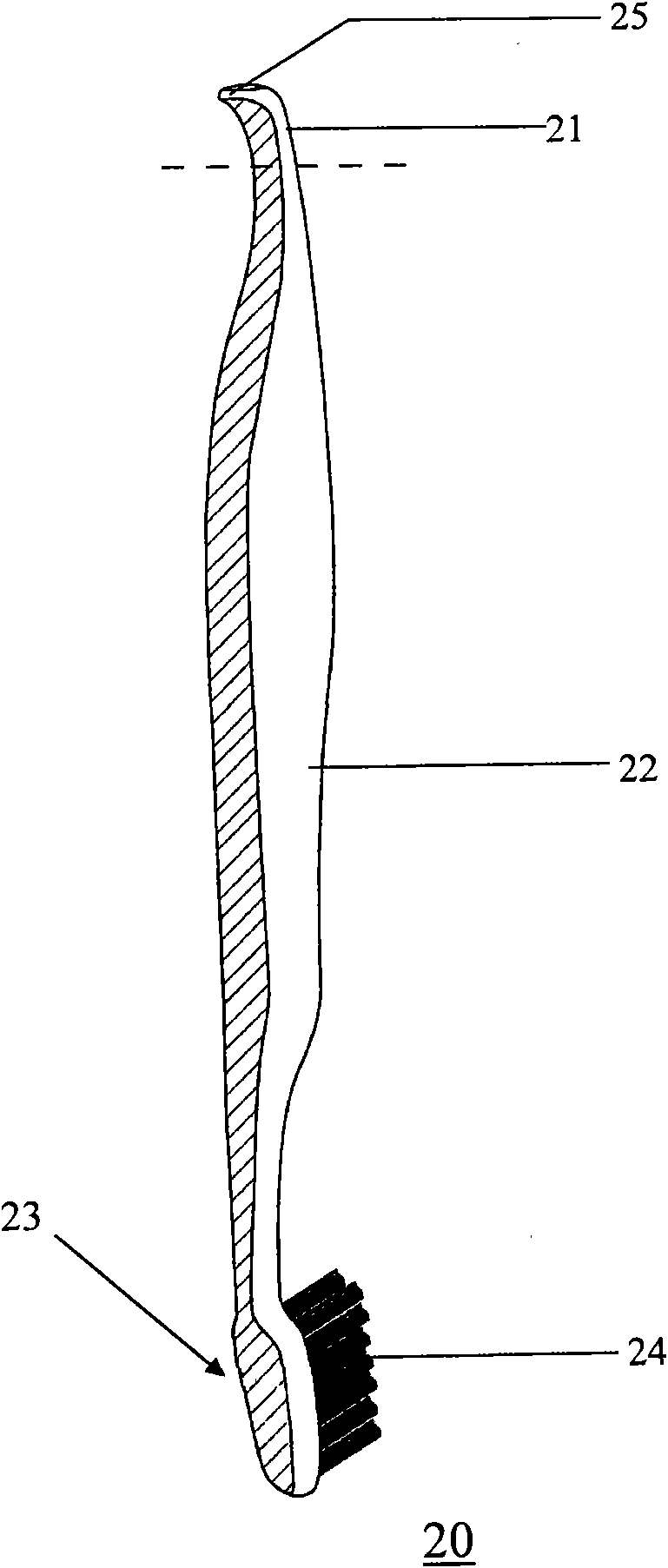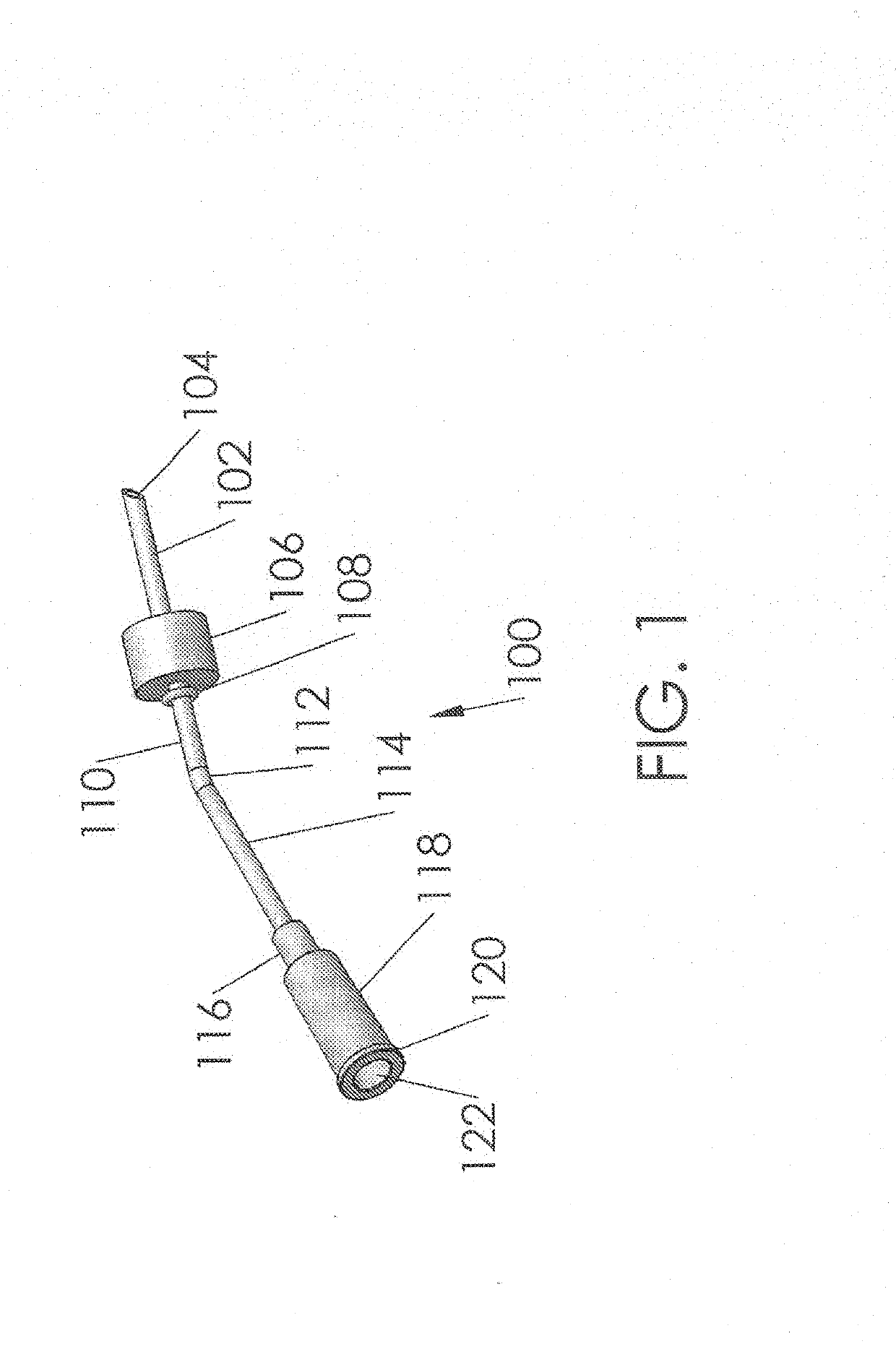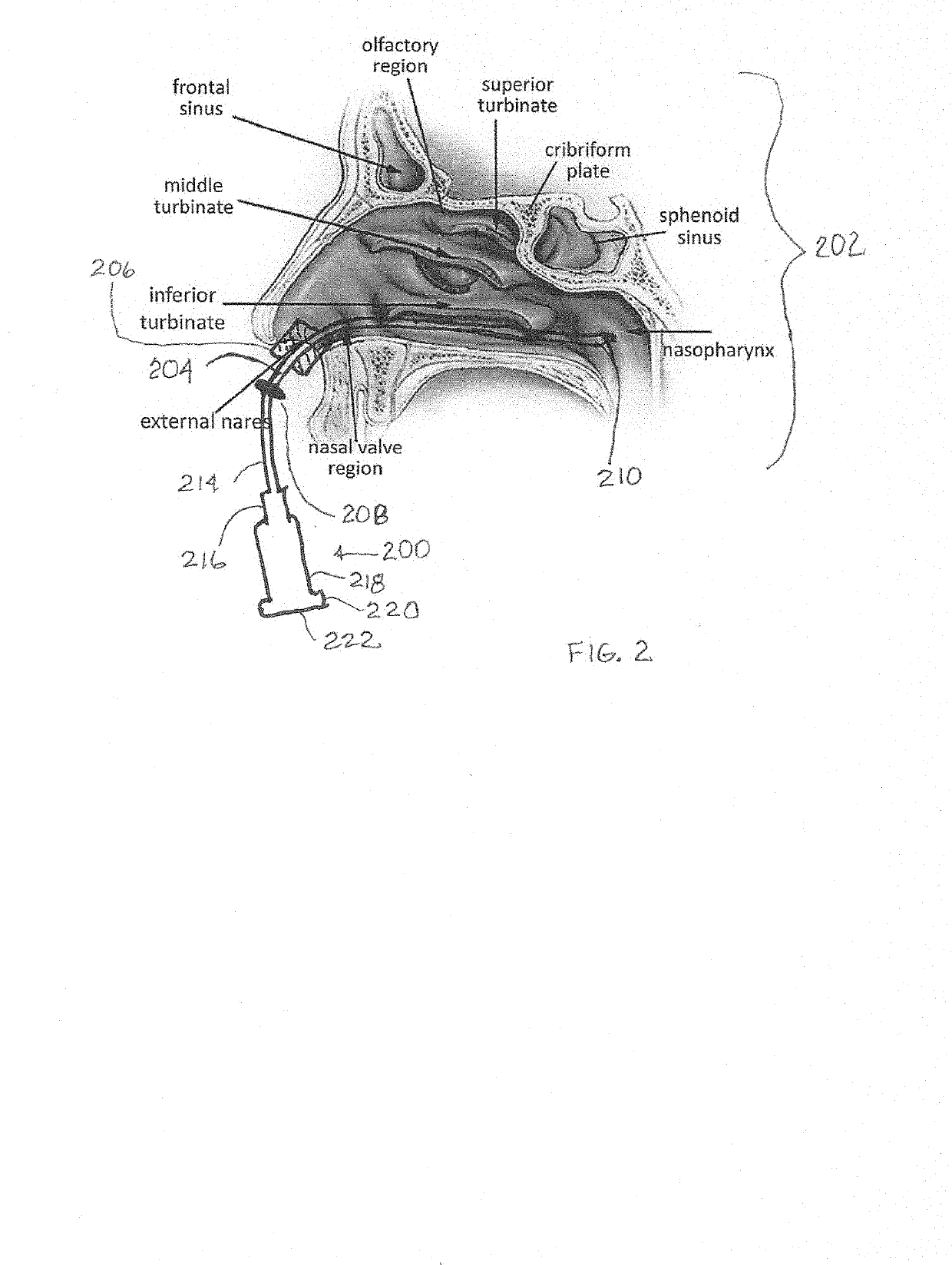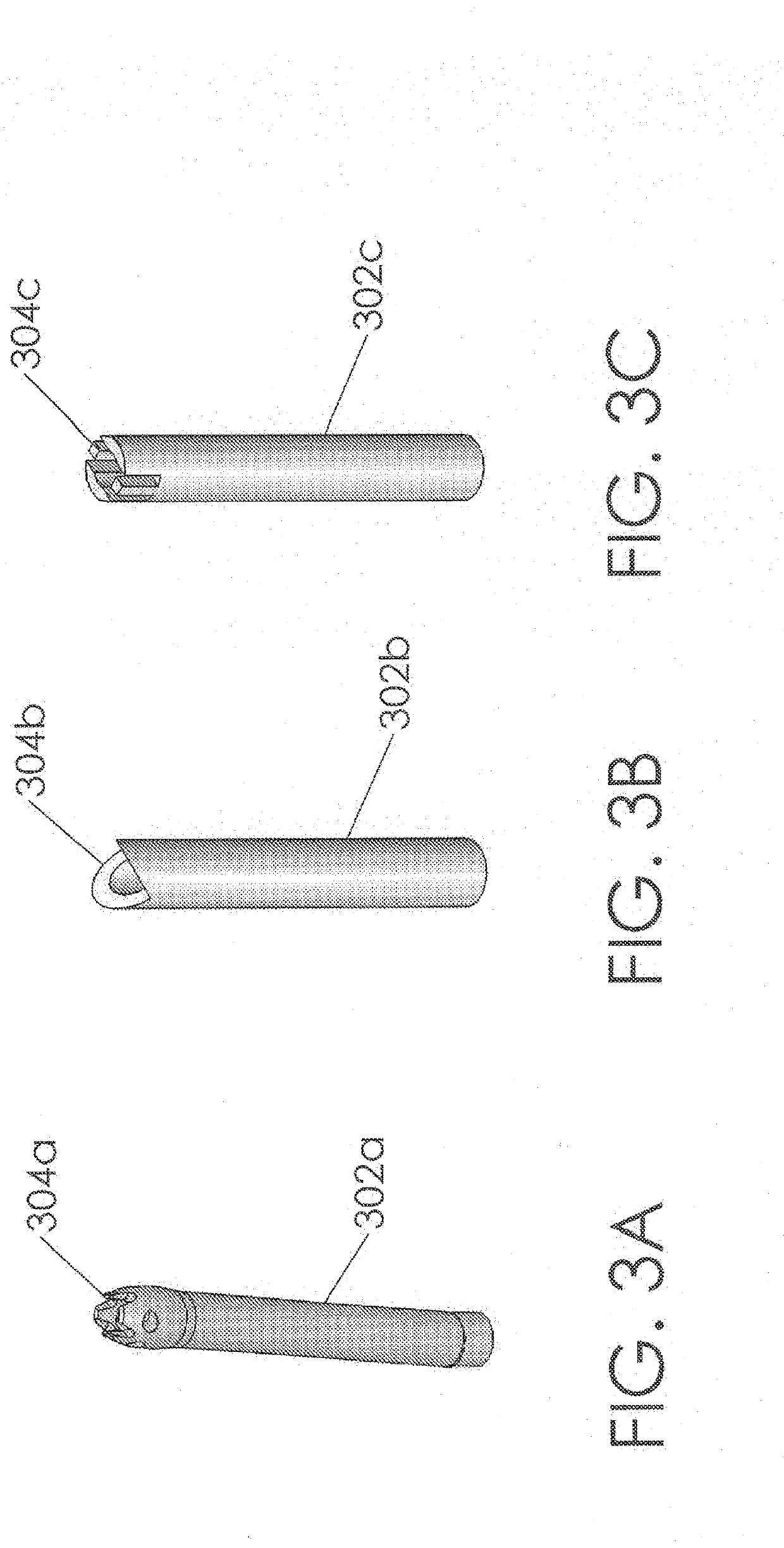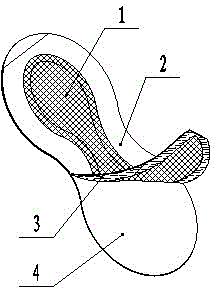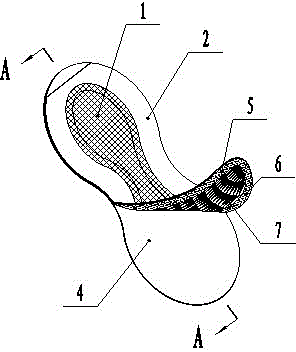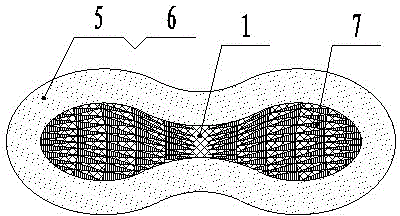Patents
Literature
Hiro is an intelligent assistant for R&D personnel, combined with Patent DNA, to facilitate innovative research.
34 results about "Nasal vestibule" patented technology
Efficacy Topic
Property
Owner
Technical Advancement
Application Domain
Technology Topic
Technology Field Word
Patent Country/Region
Patent Type
Patent Status
Application Year
Inventor
The nasal vestibule is the most anterior part of the nasal cavity. It is enclosed by the cartilages of nose and lined by the same epithelium of the skin. The other part of the nasal cavity, which is lined by the respiratory epithelium, is called nasal cavity proper. Inside the vestibule are small hairs called vibrissae, which filter dust and other matter that are breathed in.
Nasal gas delivery system and method for use thereof
A gas administering method for administering gas to an airway of a patient having a nasal vestibule and for use with a gas administering apparatus comprises a primary gas source that is operable to provide gas and a nasal vestibular portion arranged so as to receive the gas from the primary gas source. Further, the nasal vestibular portion is capable of releasing the primary gas into the nasal vestibule. The method comprises inserting the nasal vestibular portion into the nasal vestibule, forming a seal between the nasal vestibular portion and an inner surface of the nasal vestibule, administering an amount of a gas from the primary gas source at a constant flow rate into the nasal vestibule via the nasal vestibular portion, and administering an anesthetic to the patient. The anesthetic induces depression of a portion of the nervous system of the patient. Furthermore, the seal promotes airway pressure buildup that is sufficient to prevent obstruction of the airway during depression of at least a portion of the nervous system and prevents escape of the gas from between the nasal vestibule and the nasal vestibular portion.
Owner:NOBLE LINDA
Nasal gas delivery system and method for use thereof
InactiveUS20060174889A1Convenient and continuous operation of C-PAPReduce riskRespiratorsBreathing filtersNasal vestibuleNervous system
A gas administering method for administering gas to an airway of a patient having a nasal vestibule and for use with a gas administering apparatus comprises a primary gas source that is operable to provide gas and a nasal vestibular portion arranged so as to receive the gas from the primary gas source. Further, the nasal vestibular portion is capable of releasing the primary gas into the nasal vestibule. The method comprises inserting the nasal vestibular portion into the nasal vestibule, forming a seal between the nasal vestibular portion and an inner surface of the nasal vestibule, administering an amount of a gas from the primary gas source at a constant flow rate into the nasal vestibule via the nasal vestibular portion, and administering an anesthetic to the patient. The anesthetic induces depression of a portion of the nervous system of the patient. Furthermore, the seal promotes airway pressure buildup that is sufficient to prevent obstruction of the airway during depression of at least a portion of the nervous system and prevents escape of the gas from between the nasal vestibule and the nasal vestibular portion.
Owner:NOBLE LINDA
Nasal dilator
A nasal dilator that includes an upper resilient member for dilating the nasal valve and a lower resilient member for dilating the nostrils. The upper resilient member and lower resilient member may be attached to one another by a flexible substrate having a middle portion that is narrower in length than the upper or lower resilient members. The nasal dilator also may have adhesive tabs extending downwardly from the lower portion of the substrate on either side of the nose and towards the nostril entry, for temporary attachment to the side of the nasal vestibule to reduce nostril collapse. The nasal dilator also may include bendable or configurable hooks extending downwardly from the lower portion of the substrate and towards the nostril entrance for insertion into the nostril to reduce nostril collapse.
Owner:INNOVATIVE MEDICAL EQUIP
Nasal gas delivery system and method for use thereof
InactiveUS7047969B2Reduce riskOperating means/releasing devices for valvesBreathing filtersNasal vestibuleNervous system
Owner:NOBLE LINDA
Nasal gas delivery system and method for use thereof
InactiveUS20050103346A1Reduce riskOperating means/releasing devices for valvesBreathing filtersNasal vestibuleNervous system
A gas administering method for administering gas to an airway of a patient having a nasal vestibule and for use with a gas administering apparatus comprises a primary gas source that is operable to provide gas and a nasal vestibular portion arranged so as to receive the gas from the primary gas source. Further, the nasal vestibular portion is capable of releasing the primary gas into the nasal vestibule. The method comprises inserting the nasal vestibular portion into the nasal vestibule, forming a seal between the nasal vestibular portion and an inner surface of the nasal vestibule, administering an amount of a gas from the primary gas source at a constant flow rate into the nasal vestibule via the nasal vestibular portion, and administering an anesthetic to the patient. The anesthetic induces depression of a portion of the nervous system of the patient. Furthermore, the seal promotes airway pressure buildup that is sufficient to prevent obstruction of the airway during depression of at least a portion of the nervous system and prevents escape of the gas from between the nasal vestibule and the nasal vestibular portion.
Owner:NOBLE LINDA
Nasopharynx ventilating pipeline
PendingCN109939320AAvoid damageIncreased level of occluded ventilationTracheal tubesMedical devicesNasal vestibuleEngineering
The embodiment of the invention discloses a nasopharynx ventilating pipeline. The nasopharynx ventilating pipeline comprises an inflating bag, a dosing bag and a main pipe. The main pipe is formed according to the natural radian of a nasopharynx air way and is in an arc shape, and is provided with a near end for penetrating into the pharynx oralis and a far end located outside the nasal vestibule.A ventilating cavity stretching from the far end to the near end is formed in the main pipe, and thus a near end ventilating opening and a far end ventilating opening are formed respectively. The inflating bag is arranged at the near end and provided with a columnar space, an inner cavity of the inflating bag is communicated with a far end inflating valve of an inflating pipe cavity, the near endventilating opening tilts up towards the abdomen side of a pipe body by being opposite to the axis of the near end of the ventilating cavity, and therefore a near end ventilating opening guide end tilting-up part is formed. The nasopharynx ventilating pipeline has the advantages of being simple in structure, convenient to manufacture and low in cost, and is easy to use and popularize.
Owner:ZHONGSHAN OPHTHALMIC CENT SUN YAT SEN UNIV
Hidden healthy breathing machine
InactiveCN105013102AReduce volumeDoes not affect facial recognitionBreathing filtersNostrilNasal vestibule
The invention discloses a hidden healthy breathing machine. Particularly, the breathing machine is formed by a filter chamber box and two air charging and discharging nose stoppers by means of assembling, wherein the two air charging and discharging nose stoppers are matched with nostrils of a human body and are communicated with the internal air flow of the filter chamber box; each air charging and discharging nose stopper is provided with a protruding plug which is matched with an inner model of the nasal vestibule of the human body in an inserted manner. The hidden healthy breathing machine disclosed by the invention has the advantages that the breathing machine is small in size, is of a hidden wearable structure and is free of influences to the face differentiation degree of a user after being worn; each air charging and discharging nose stopper of the breathing machine is provided with the protruding plug which is matched with the inner model of the nasal vestibule of the human body in an inserted manner, so the breathing machine can be worn firmly; the air charging and discharging nose stoppers have good leakproofness with the nasal cavity; the mouth needs not to be covered; normal speaking and eating of the user are not affected.
Owner:吴凤松
Nasal Device Useful for Prevention of Snoring and Sleeping Apnea
InactiveUS20090277459A1Comfortable to usePreventing snoring & sleeping apneaSnoring preventionNon-surgical orthopedic devicesNasal vestibuleNostril
The present invention deals with a nasal device which is useful for prevention of snoring wherein the present device works on keeping the nares normally open mechanically, by abducting the nasal vestibule (upper & anterior portion of the lateral wall of the nose which is covered by skin), forward and laterally, which makes air to flow in and out adequately, a stainless steel Skelton having one continuous stainless steel wire of unique design (as apparent in FIG. 3), configured with the spring (1) having two prominent side knobs (2) and two resilient acute angles (6) to permit the abduction arms (4) and plates (7) to be worn (or inserted) inside the nose, wherein the said arms consisting of abduction plates (7) at its free end. Its base resting on the columellae outside the nose which is in continuity with the abduction arms by the said base arms (3), and the whole said device is coated with a thin layer of latex sponge or silicon to make it comfortable during use.
Owner:JORDAN INNOVATION CENT FOR ENGINEERS & INDAL ENTERPRISES ROYAL SCI SOC
Nasal cavity hemostat, sinus cavity hemostat and hemostasis operation method
InactiveCN103720501AReduce positioning effectPlay a positioning roleSurgeryNasal vestibuleBleeding time
The invention relates to a nasal cavity hemostat, a sinus cavity hemostat and a hemostasis operation method. The nasal cavity hemostat comprises a hemostasis airbag, an airway conduit, a nasal vestibule plug, a fixed buckle, an inflating pipe, an indication balloon and an inflation valve, and is characterized in that: one end of the airway conduit is sleeved on the nasal vestibule plug; the fixed buckle is arranged on the nasal vestibule plug; thicknesses of two lateral walls of the hemostasis airbag are not equal. The sinus cavity hemostat comprises a hemostasis airbag, an inflating pipe, an indication balloon and an inflation valve, wherein the hemostasis airbag is of an ovular flat structure matched with the space inside the sinus cavity. The nasal cavity hemostat and the sinus cavity hemostat have the advantages that: the shape of the hemostasis airbag is matched with that of an operated cavity, and can be well attached to the nasal cavity of a patient when used, and hemostasis can be realized by virtue of physical compression to the surface of nasal mucosa; the pressure is uniformly and adjustable, the plug discomfort can be reduced; the contact with a bleeding wound of the nasal cavity can be possibly reduced in inserting and withdrawing processes, and secondary wound can be avoided; the patient can breath through the nasal cavity due to the airway conduit; the operation is convenient, the bleeding time can be shortened, complication can be reduced, and pains of patients can be lightened.
Owner:TIANJIN PLASTICS RES INST CO LTD
Neuromodulation for treatment of retinal, choroidal and optic nerve disorders and/or dysregulated reduced ocular blood flow (OBF)
Disclosed are devices, systems and methods for non-invasive neuromodulation system for treating inherited or acquired retinal, choroidal and optic nerve disorders caused by acute or chronic dysregulated reduced ocular blood flow (OBF) and / or energy failure by up regulation of trigemino-vascular system (TVS), trigeminal autonomic brain reflexes (TABRs) and pancreatic trigemino-vagal reflex (TVR) through stimulation of ophthalmic nerve (V1), more specifically but not limited to SP, and CGRP containing unmyelinated C nerve fibers. The invention, in some embodiments thereof, relates to the methods for enhancing SP and CGRP expression in neurovascular tissue of the retina and choroid. The invention, in some embodiments thereof, relates to SP / CGRP mediated pathways, including those involved in vasodilatation, augmentation of OBF, RPE proliferation, prevention of apoptosis, suppressing neuroinflammation, promoting migration and differentiation of vascular endothelial cells as well as mobilization of endogenous mesenchymal stem cells (EMSCs) from the bone marrow to the circulation to accelerate tissue repair. The site of stimulation of V1 nerve includes but not limited to; nasal vestibule nasal bridge, forehead, and upper eyelids. Additionally or alternatively, the subject's sympathetic nervous system (SNS) is down regulated by sympatholytic agents specifically antioxidants. The subject's TVS and autonomic nervous system (ANS) are modulated in a manner that is effective to treat the subject for retinal, choroidal and / or optic nerve disorders. In some embodiments, the devices are handheld, portable with nose supported, having one or more intra-nasal or extra-nasal application heads. The signal can include vibration, chemical, ultrasonic, optical, electrical, hybrid electro-optical or combination of two or more of these types of stimuli. The invention, in some embodiments thereof, relates to a method for decreasing vascular resistance, enhancing vasodilatation in ophthalmic artery and its branches by the release of Vasoactive intestinal peptide (VIP),substance P and CGRP thereof increasing OBF to the retina, choroid and optic nerve in subject's with acute or chronic dysregulated, reduced OBF. The invention, in some embodiments thereof, is also related to the methods for improving delivery of oxygen, glucose, vitamin A, humoral mediators, growth factors, stem cells and pharmacological agents to the targeted tissues of the retina, choroid and optic nerve. The invention, in some embodiments thereof, relates to the methods for improving pancreatic insulin secretion, thereof to enhance glucose uptake by PRs and other retinal cells. Additionally or alternatively, the invention relates to restoration of transduction of signaling in cone PRs by ONS induced glutamate release. The methods of the invention, in some embodiments thereof, include priming of the retina choroid and optic nerve thereof to enhance the efficacy of cell transplantation therapy. The methods of the invention, in some embodiments thereof, also include identifying a subject prone to or suffering from a disease or condition associated with reduced OBF. Methods of the invention, in some embodiments thereof, may also include monitoring the subject for prophylactic treatment where the patients are at pre-clinical stage of the disease. The OBF of subjects who had received neuromodulation treatment may also be monitored for re-treatment.The present invention, in some embodiments thereof, relates to a method and / or device for treatment of dysregulated reduced blood (e.g. reduced ocular blood flow) and, more particularly, but not exclusively, to methods and / or devices for treatment retinal, choroidal and optic nerve disorders. Optionally, treatment may include application of an effective amount of ONS ophthalmic nerve stimulation alone and / or in combination with pen-ocular administration of substance Neuropeptides / Platelet Rich Plasma (N / PRP) and / or ascorbic acid as a sympatholytic agent
Owner:MUSALLAM ISMAIL MOHAMMED YOUSIF
Medicine delivery apparatus and medicine delivery method for olfactory cleft region
PendingCN110841178AAvoid enteringEasy to cleanMedical devicesMedical insufflatorsNasal vestibuleBiomedical engineering
The invention discloses a medicine delivery apparatus and medicine delivery method for an olfactory cleft region. The medicine delivery apparatus for the olfactory cleft region is characterized in that a pressurizing device is movably connected with a sprayer; the sprayer comprises an end cap portion, and one end of the end cap portion is connected with the pressurizing device while the other endof the end cap portion is connected with one end of a medicine storage chamber; the other end of the medicine storage chamber is connected with a soft nozzle. According to the technical scheme, the medicine storage chamber in the sprayer is separated from the pressurizing device and arranged at a position closest to the soft nozzle to enable medicines to be thoroughly delivered into the nasal cavity; further, repeated medicine adding can be performed by opening the end cap portion of the medicine storage chamber; in addition, the soft nozzle is arbitrarily changeable in shape and beneficial toextension into the nasal cavity (such as nasal vestibule) to realize medicine delivery in the olfactory cleft region.
Owner:贵州乐恩生物科技有限公司
Intra-nasal air filtration devices and methods
An intra-nasal air filtration device includes a filter material. The filter material is sized to fit a nasal vestibule of a user, is resilient such that it expands after compression for insertion into the nasal vestibule, and blocks passage of airborne particles while permitting passage of air during inhalation by the user. The filter material preferably includes a plurality of synthetic fibers. In some embodiments, the filter material has a density and texture similar to that of a natural sea sponge. In some embodiments, particles of activated charcoal are bonded to the fibers and a synthetic fabric is bonded to at least a portion of an outer surface of the synthetic fibers. A method of manufacturing an intra-nasal air filtration device, a method of filtering airborne particles from an air stream, and a method of enhancing breathing of an individual are also disclosed.
Owner:GOODHEW WILLIAM
Temperature-sensitive nasal liquid dressing and preparation method thereof
PendingCN110693818ARelieve inflammationRelieves allergy symptomsAerosol deliveryOintment deliveryNasal vestibuleCellulose
The invention discloses a temperature-sensitive nasal liquid dressing and a preparation method thereof and mainly relates to the field of nasal medicine. The temperature-sensitive nasal liquid dressing comprises, by weight, 0.1-20 parts of glycerin, 1-20 parts of poloxamer 407, 0.1-5 parts of poloxamer 188, 0.2-5 parts of sodium carboxymethylcellulose and 1-99 parts of water. Sprayability of a solution and adhesiveness of gel are combined, so that ability of a preparation to retain in the nasal cavity is improved at the premise that administration of the liquid dressing is achieved; a physicalbarrier is formed in a nasal vestibule to block allergens to reduce the number of allergens in a nose, so that allergic symptoms are relieved.
Owner:吉林省华恩生物科技有限公司
Anti-infection nasal vestibule covered stent and preparation method and application thereof
The invention discloses an anti-infection nasal vestibule covered stent and a preparation method and application thereof, the nasal vestibule covered stent comprises a stent body, the shape and size of the stent body are matched with the shape of a nasal vestibule; and a covering film, wherein the covering film is compounded on the stent body. The stent body has a shape memory function and is well matched with the form structure of the nasal vestibule of a human body. The covering film is composed of at least one fiber layer, and the aperture of the fiber layer is gradually reduced from the lowermost layer of the lower covering film to the uppermost layer of the upper covering film in a gradient mode. The nasal vestibule covered stent provided by the invention can achieve gradient filtration of gas inhaled into a human body through a nose, and achieves the purpose of preventing bronchial, microbronchial and pulmonary infection of an artificial trachea or tracheal stent transplantation patient. The stent is simple in structure, convenient to manufacture, attractive in application and remarkable in anti-infection effect, medicine carrying and medicine releasing of the covered stent can be achieved, and the stent has multiple additional function attributes.
Owner:DONGHUA UNIV
Nose washing device
The invention discloses a nose washing device. The nose washing device comprises a hollow nose mask body, wherein a groove which is matched with the face of a human body is formed in one side of the nose mask body, and first openings are formed in the top end of the nose mask body; protruding nose plugs are arranged at the bottom end of the nose mask body and in the groove, second openings are formed in the nose plugs, and a support which is hung on the nasal vestibule of the human body is arranged at the bottom of the nose mask body. The nose washing device avoids the pollution to the oral cavity, is convenient to wear and constant in temperature, and avoids the phenomenon that the unstable water temperature stimulates the nasal mucosa.
Owner:赵德恒
Memory guide wire combined type lacrimal probe
The invention discloses a memory guide wire combined type lacrimal probe. The lacrimal probe comprises a memory guide wire which can be inserted and pulled up and down in a tube of a probe body. The memory guide wire is formed by an alloy consisting of 50% of titanium and 50% of nickel, and is subjected to a heat treatment technology of a self-research test so as to enhance memorability, elasticity and tenacity thereof. The memory guide wire is in a flat shape. The mixture ratio of the titanium and the nickel is more scientific and the memory guide wire is subjected to the heat treatment of the self-research test, thus greatly improving the memorability, the elasticity and the tenacity thereof, and being easy to operate and not easy to fracture; moreover, the J shape and front spoon-shapedbending using function of the guild wire as well as the arranging angle of a side wall hole of the lacrimal probe are improved, thus being easier for the memory guide wire to extend to the position of nasal vestibule.
Owner:项小珍
Hair remover
Removing hair in a conventional manner is of low work efficiency. Nasal hair stereoscopically grows, and where in the nasal vestibule portion it grows is not clear. Thus, it is difficult in some cases to treat even one nasal hair. Also, using a shaver does not allow treated nasal hair to be visually recognized, which leaves uncertainty as to how much of nasal hair that has been actually treated. Therefore, a hair remover that pinches hair by compressing a spring along an axle member and removes the hair by moving with the spring being compressed is provided.
Owner:SATO GANJI
Nose cleaner, and nose and tooth cleaner
InactiveUS20100064457A1Conveniently and effectively removedEasy to cleanCarpet cleanersFloor cleanersNasal vestibuleNasal discharge
The invention relates to a nose cleaner in removing booger to make nasal vestibule clean, no matter a nose cleaner alone or a nose and tooth cleaner. A nose cleaner alone has a handle and a nose cleaning body. The nose cleaning body can be put into a nostril in removing booger to make nasal vestibule clean. On the other hand, a nose and tooth cleaner has a handle, a tooth cleaning body, and a nose cleaning body. It is convenient that besides of cleaning teeth with the tooth cleaning body, the nose cleaning body is availed to a user in putting into a nostril and removing booger to make nasal vestibule clean.
Owner:LEE CHUN YI
Inner clamping type nose clip
PendingCN110898405AEasy to adjustNot easy to damageSwim capsNasal vestibulePhysical medicine and rehabilitation
The invention relates to an inner clamping type nose clip which comprises a plugging soft pad and a supporting fixture, and a clip head of the supporting fixture penetrates through the plugging soft pad and is oppositely provided with convex points used for clamping the position of a nasal vestibule. An elastic assembly with a resilience force and a supporting clamp are used for forming counter-acting force to adjust the length of the head of the clamp extending into the nasal cavity, adjustment is easy, damage is not likely to happen, nostrils can be used for exhaling during swimming, and correct swimming essentials are met; meanwhile, the nasal vestibule below the nasal septal cartilage is used as a stress point, no pain is caused after long-time use, and no injury is caused to nasal mucosa.
Owner:程文君
Neuromodulation for treatment of brain and eye strokes and/or acute dysregulated reduced cerebral or ocular blood flow
PendingUS20210023372A1Ultrasound therapyHydroxy compound active ingredientsNasal vestibuleNervous system
Disclosed are devices, systems and methods for non-invasive neuromodulation system for prompt treatment of cerebral and / or ocular strokes caused by acute dysregulated reduced cerebral blood flow (CBF) and / or ocular blood flow (OBF) by up regulation of trigemino-vascular system (TVS), and trigeminal autonomic brain reflexes (TABRs) through stimulation of ophthalmic nerve. Additionally or alternatively, the subject's sympathetic nervous system (SNS) is down regulated centrally by intravenous administration of pharmacological dose of ascorbic acid. The site of stimulation of ophthalmic nerve includes but not limited to nasal vestibule, nasal bridge, and forehead and upper eyelid. In some embodiments, the devices are handheld, portable with nose supported, having one or more intra-nasal or extra-nasal application heads. The signal can include vibration, chemical, ultrasonic, optical, electrical, hybrid electro-optical or combination of two or more of these types of stimuli. The subject's TVS and autonomic nervous system (ANS) are modulated in a manner that is effective to treat the subject for cerebral and ocular strokes. The invention, in some embodiments thereof, relates to a method for decreasing vascular resistance, enhancing vasodilatation in cerebral arteries, leptomeningeal collaterals and ophthalmic artery by the release of Vasoactive intestinal peptide (VIP),substance P and CGRP thereof increasing cerebral and / or OBF to the brain and the eye in subject's with acute dysregulated, reduced cerebral and / or OBF. The invention, in some embodiments thereof, is also relates to upregulation of TVS in a manner that is effective to induce acute development of leptomeningeal collateral circulation sufficient to ameliorate the ischemic effect of occluded cerebral artery, enhances successful recanalization, decreases the infarction volume and improves brain functional recovery without hemorrhagic transformation. In some embodiments TVS and ANS are also modulated in a manner that induce an acute increase in choroidal blood flow sufficient to ameliorate the ischemic effect of occluded artery until spontaneous recanalization of the occluded artery is accomplished. The invention is related to targeting the affected side via ipsilateral ONS without inducing intracerebral vascular steal phenomenon. The invention, in some embodiments thereof, is also relates to the methods for improving delivery of oxygen, glucose, anticoagulants, hormones, humoral mediators, growth factors and pharmacological agents to the targeted ischemic tissues of the brain, retina and optic nerve. The methods of the invention, when combined with r-tPA treatment and / or endovascular recanalization increases window time of treatment of stroke, enhance the efficacy of treatment and reduce its side effects. The methods of the invention, in some embodiments thereof, include priming of the brain, retina and / or optic nerve thereof to enhance the efficacy of cell transplantation therapy after exposure to stroke. Methods of the invention, in some embodiments thereof, may also include monitoring the subject for prophylactic treatment. The cerebral / and or OBF of subjects who had received neuromodulation treatment may also be monitored for re-treatment.
Owner:MUSALLAM ISMAIL MOHAMMED YOUSIF
Nasal irrigator built in nasal vestibule
The invention discloses a nasal irrigator built in nasal vestibule. The nasal irrigator comprises a liquid container, an infusion hose, and a flexible spray head. When the nasal irrigator is in use, the flexible spray head is positioned into nasal vestibule, and irrigating liquid is directly sprayed into the nasal cavity for irrigating.
Owner:黄海兵
Adjustable nasal cavity cleaning device
ActiveCN114129434AAchieve cleaningPromote recoveryMedical devicesBathing devicesNasal vestibuleNasopharyngeal cancer
The invention discloses an adjustable nasal cavity cleaner, and belongs to the technical field of nasopharynx cleaning. A flushing assembly is arranged at the upper end of the bottle body, and an infusion device is arranged in the bottle body; the flushing assembly comprises a cleaning head corresponding to the nasal vestibule nostrils, a cleaning pipe capable of extending out along the cleaning head, and a sliding strip used for sliding the cleaning pipe to enable the cleaning pipe to extend out of the cleaning head; the extending end of the cleaning pipe is provided with a cleaning opening, an optical lens and an LED lamp, the cleaning opening is communicated with a liquid conveying device through a washing channel in the cleaning pipe, the optical lens is connected with a display screen installed on the side wall of the bottle body through optical fibers in the cleaning pipe, and the portion, corresponding to the extending portion of the cleaning pipe, of the cleaning head is provided with an annular spraying opening. The cleaning device can be used for cleaning thick materials deep in the nasopharyngeal cavity through manual control, so that recovery of a patient with nasopharyngeal carcinoma after treatment is facilitated.
Owner:THE PEOPLES HOSPITAL OF GUANGXI ZHUANG AUTONOMOUS REGION
An analytical device for detecting nasal drug delivery
ActiveCN110161198BQuantitative detection of drug contentTesting medicinal preparationsNasal vestibuleDrug content
The invention discloses an analysis device for detecting nasal drug administration, which is characterized in that the analysis device includes an elbow (1) as a part of the nasal cavity, and the elbow (1) consists of a drug feeding tube as a nasal vestibule (2) and the receiving tube (3) as the middle meatus, the receiving device (4) as the maxillary sinus is arranged on the lumen of the receiving tube (3), and the receiving tube (3) on the front side of the receiving device (4) ) The pipe wall is provided with a crack (5) as a half-lunar hole and the receiving device (4) is provided with a top cover for sampling or cleaning. The analysis device of the present invention is used to simulate the structure of nasal cavity, maxillary sinus and ostium-nasal cavity complex, the analysis device is used for in vitro equivalence detection of nasal atomization inhalation, and can quantitatively detect the drug content in maxillary sinus after nasal atomization administration , Quantitative analysis of the drug content in the maxillary sinus after nasal atomization is used to evaluate the quality of drug nasal atomization preparations.
Owner:南京樟益医药科技有限公司
Nasal-oral cleaner and a nasal cleaner
InactiveCN101675867AGuaranteed cleanlinessSignificant progressEar treatmentBrushesNostrilNasal vestibule
The invention relates to a nose-oral cleaner and a nasal cleaner. A nose cleaner alone has a handle and a nose cleaning body. The nose cleaning body can be put into a nostril in removing booger to make nasal vestibule clean. On the other hand, a nose and tooth cleaner has a handle, a tooth cleaning body, and a nose cleaning body. It is convenient that besides of cleaning teeth with the tooth cleaning body, the nose cleaning body is availed to a user in putting into a nostril and removing booger to make nasal vestibule clean.
Owner:PROSPERI MARKETING
Anti-sneeze and nose vestibule care - compositions, methods, and devices
Compositions, methods, and devices are herein disclosed for anti-sneeze and nose vestibule care for humans and other animals. An anti-sneeze composition includes an adrenergic agent, an anticholinergic agent, an antihistamine, a plasticizer for nose skin / nose muscle, and a soothing agent. A version of nose vestibule care composition includes alternative functional agents, such as anti-inflammatory agents, anti-oxidants, and antimicrobials, besides adrenergic, anticholinergic, and antihistamine agents. The alternative or additional agents are present in the invented composition for the purposes of wellness care of noses, prevention of diseases or aiding a medical treatment. The methods and devices for delivering the compositions to the nose vestibules for anti-sneeze, for wellness care, preventive care measure against diseases, and for aiding medical treatment of diseases are prescribed.
Owner:LI YONGHUA
Nasal smoke evacuator
PendingUS20210386445A1Efficient captureEfficient removalMedical devicesSurgical instruments for aspiration of substancesNasal vestibuleNasal Cavity Epithelium
A method and means effectively evacuates smoke plumes, vapors, aerosol release, mists, tissue and small particles produced from an operative nasal cavity and any other gas- or air-borne materials provided in or produced in the surgical environment. To this end, an evacuator tube is placed in the contralateral (suction) nasal cavity surrounded by a sealing member which blocks the space between the evacuator tube and nares and / or nasal vestibule.
Owner:BURBAN JOHN H +5
Plaster contg. Chinese herb medicine for treating nose or lip diseases and its prepn. method
InactiveCN1785228AGood curative effectEasy to usePharmaceutical delivery mechanismDermatological disorderDiseaseFacial caries
A Chinese medicine in the form of plaster for treating rhinitis, nasosinusitis, nasal vestibulitis, nasal vestibulum eczema, exfoliating cheilitis, gingivitis and childí»s decayed tooth is proportionally prepared from calomelas, catechu, pearl, croton seed and borneol through pulverizing, boiling sesame oil at 80 deg.C, adding minium, stirring, adding said powder of Chinese-medicinal materials, and stirring to obtain plaster. It is applied by sticking it onto Yintang acupoint.
Owner:张海林
Nasal plastic technology combining prosthesis with small amount of auricular cartilage
InactiveCN112656545APlay a protective effectDoes not affect the formSurgeryProsthesisNasal vestibuleRhinoplasty
The invention relates to the field of medical technology display, in particular to a nasal plastic surgery technology combining a prosthesis with a small amount of auricular cartilage, which comprises the following steps of: 1, searching gold points on a human body model; 2, conducting prosthesis engraving; 3, performing anesthesia; 4, stripping the periosteum of the nasal bone; 5, placing the prosthesis; 6, taking the auricular cartilage; 7, placing auricular cartilage; and 8, suturing the nasal vestibule and the posterior auricular incision. The invention has the advantages of small operative wound, quick recovery, wound concealment, firm prosthesis fixation and no excursion; the selected auricular cartilage curvature is close to the physiological curvature of the nose, so that the nose is protected, and the nose is natural and attractive; the ear shape is not influenced by only taking a small amount of auricular concha cavity cartilage; and operation display of the human body model is used, the advantages of the rhinoplasty are displayed, and customers can know the rhinoplasty technology more visually and conveniently.
Owner:李果
An adjustable nasal washer
ActiveCN114129434BAchieve cleaningPromote recoveryMedical devicesBathing devicesNasal vestibuleAfter treatment
The invention discloses an adjustable nasal cavity cleaner, which belongs to the technical field of nasopharyngeal cleaning. The bottle body, the upper end of the bottle body is provided with a flushing component, and the bottle body is provided with an infusion device; the flushing component includes a cleaning head corresponding to the nasal vestibule nostrils, a cleaning tube that can extend along the cleaning head, and is used for sliding the cleaning tube to make the cleaning tube extend. The cleaning head has a sliding bar; the extended end of the cleaning pipe is provided with a cleaning port, an optical lens and an LED light, the cleaning port is connected to the infusion device through the flushing channel in the cleaning pipe, and the optical lens is connected to the bottle body through the optical fiber in the cleaning pipe. For the display screen on the side wall, the cleaning head is provided with an annular spray port corresponding to the extension of the cleaning pipe. The invention can manually control the cleaning of the thick material deep in the nasopharyngeal cavity, thus facilitating the recovery of nasopharyngeal cancer patients after treatment.
Owner:THE PEOPLES HOSPITAL OF GUANGXI ZHUANG AUTONOMOUS REGION
Novel nose breathing device
The invention discloses a novel nose breathing device, which comprises a miniature latticed body (1), a film layer (2) and a viscose layer (3) and is characterized in that the miniature latticed body (1) is arranged on the front side of the film layer (2); the front side and the back side of the film layer (2) are communicated with each other; the viscose layer (3) is arranged on the back side of the film layer (2) in a position at the periphery of the miniature latticed body (1); adhesive paper (4) is adhered to the viscose layer (3); and during the same period of time, passages formed by the miniature latticed body (1) and the film layer (2) can enable the inspiration volume of a human body to be larger than the expiration volume of the human body. Through structural innovations in the miniature latticed body, the film layer and a one-way miniature valve body, the invention provides the novel nose breathing device, which is simple in structure and convenient to use, and can form expiration positive pressure in an air passage during the expiration of a patient and keep a respiratory tract smooth during sleeping.
Owner:宁波宏搏高科医疗器械有限公司
Features
- R&D
- Intellectual Property
- Life Sciences
- Materials
- Tech Scout
Why Patsnap Eureka
- Unparalleled Data Quality
- Higher Quality Content
- 60% Fewer Hallucinations
Social media
Patsnap Eureka Blog
Learn More Browse by: Latest US Patents, China's latest patents, Technical Efficacy Thesaurus, Application Domain, Technology Topic, Popular Technical Reports.
© 2025 PatSnap. All rights reserved.Legal|Privacy policy|Modern Slavery Act Transparency Statement|Sitemap|About US| Contact US: help@patsnap.com
